How to write an informal essay
- April 6, 2022
An informal essay is quite different from other types of essays . In an informal essay, you’re writing as if you are talking to a friend. You do not need to engage in a strict academic writing process , but you should still avoid sloppiness.
- In a formal essay, you expresses your ideas quietly behind the words.
- In an informal essay, you talk to the reader in a conversational manner.

Formal and informal essays
In order to understand the difference between a formal and informal essay more clearly, let’s look at the table below.
Now that we know the general rules and definitions of an informal essay, let’s continue with the steps to write a great one.
Choose an informal essay topic
This is generally the first step of any essay writing process unless you are pre-assigned a topic already. An informal essay gives you a great opportunity in this step; you can write an informal essay on almost any topic . Here are some tips for you.
Informal essay topic tips
- Choose a topic you have knowledge and are excited about.
- Find inspiration from your own personal experiences.
- Just think about what you like to talk about the most, and you have your topic.
When choosing a topic:
Put the list away for an hour after you’ve created it. Return to it later. Most probably, one topic will stand out to you more. Then, you can write about that topic. For this how-to guide, we are choosing the topic “ why I stopped eating meat ”.
Create an outline
An informal essay does not need to follow a strict structure . However, it should still be coherent. Therefore, your outline does not need to be strict either. Just create one to help organize your thoughts.
Example of an informal essay outline
- Thesis statement
- Referring to reader
- Address to the reader
- Concluding sentence
Informal essay outline best practices
- Remember you still need to do research while writing an informal essay.
- Put together your research results in your outline so that your writing process becomes way easier.
- Make sure to detail each part of the essay before writing, so you can write much faster.
Write an introduction
Now, you start the actual writing process. In the introduction of an informal essay, you can basically follow the traditional introduction guide .
Informal essay introduction example
Informal essay introduction best practices.
Before writing an introduction, you must first create an idea, identify a purpose, and collect information for the project. The introduction also should contain a thesis statement .
Remember this type of essay is characterized by the inclusion of the writer’s viewpoint on the chosen topic , so be sure to declare your stance clearly.
Write the body paragraphs
Informal essay paragraphs example, tips for informal essay paragraphs.
- You can write the main body of your essay using cliches, idioms, and even jargon. Don't forget every paragraph needs a topic sentence .
- This is not a particularly academic type of paper; therefore, avoid sentences that are too long and complicated.
- To create a connection with the reader, it’s important to use a relaxed tone, transition words , and transition sentences .
- Simple, quick, readable sentences and the use of various intonations will provide the essay with the necessary emotional context.
- This is a basic rule: write in a language that your professor can comprehend. That is to say, even if this is an informal assignment, it should still be readable.
Important tip
Write a conclusion.
In the conclusion paragraph , you will need to summarize your main points and make a clear final comment.
Informal essay conclusion example
Informal essay conclusion tips.
- Don’t make your conclusion repetitive.
- Just quickly list the key points of conversation to leave a lasting impact on the reader.
- You want them to remember and think about what you’re saying.
5-Paragraph Informal Essay Example
Game of Thrones: A World of Fantasy and Intrigue
Introduction
Body paragraphs, key takeaways.
- An informal essay is a type of essay that is written in a conversational style and often includes personal anecdotes and opinions.
- To write an informal essay, you should choose a topic that you are passionate about and write in a voice that is natural and engaging.
- Begin your essay with a clear introduction that hooks the reader and provides context for your topic.
- Use personal anecdotes, humor, and other storytelling techniques to illustrate your points and engage the reader.
- End your essay with a conclusion that summarizes your main points and provides a final reflection on your topic.
Recently on Tamara Blog
How to write a discussion essay (with steps & examples), writing a great poetry essay (steps & examples), how to write a process essay (steps & examples), writing a common app essay (steps & examples), how to write a synthesis essay (steps & examples), how to write a horror story.

- Place order
How to Write an Informal Essay: A Beginners' Guide

A typical academic essay is serious writing. It is serious because it is often well-researched and written formally. The typical informal essay is the exact opposite of this.
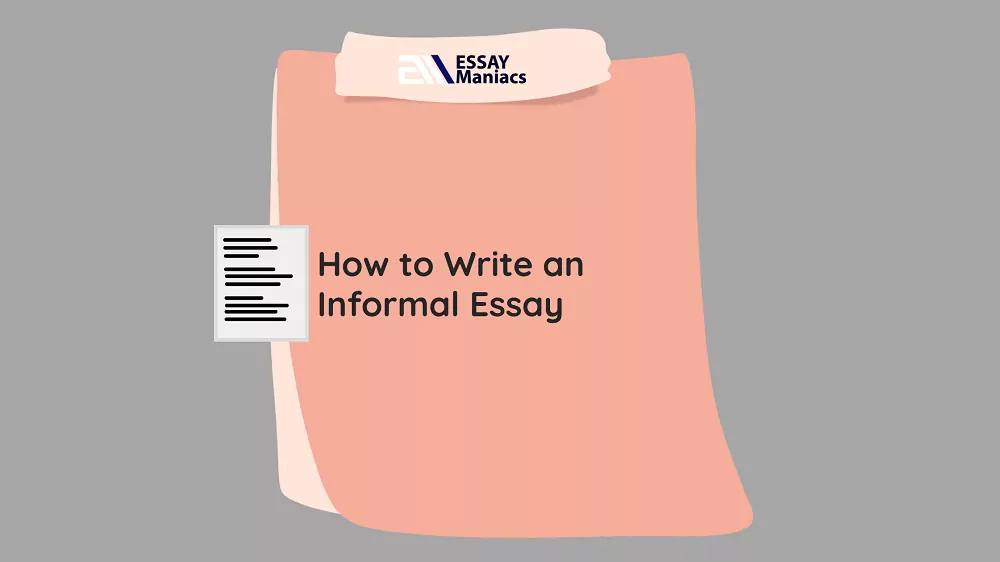
It is often not researched at all and is written in a casual tone. Furthermore, it is commonly written for enjoyment rather than serious discourse. And for that reason, it is a non-fiction essay that does not follow the writing conventions and is purely based on the author's reasons, reflections, and ideas.
In this guide, you will discover everything crucial you need to know to write a brilliant informal essay.
What is an informal essay?
An informal essay is an essay that is written for enjoyment rather than to argue or support a thesis with scholarly evidence. The essay is usually personal in nature and based on memory. A good example of an informal essay is – The happiest day of my life.
To write this essay, you simply need to recall the happiest day of your life and then write about it chronologically. As you can see, you don’t have to do much research to write an informal essay.
The fact that an informal essay is written for enjoyment does not mean that it does not have a set structure. The typical informal essay is a five-paragraph essay with three key parts – introduction, body, and conclusion. In terms of word count, the essay is often between 700 and 1,000 words long. The only thing informal about it is the fact that it does not need serious research. Moreover, unlike most essays, the informal can be written in a casual or conversational tone. This means that it can be written in the first and second person.
In most cases, informal essays are written for consumption by the author – to show their creativity, journal an experience, or release emotions through writing pieces.
Structure of an Informal Essay
Like most college students, you are probably used to following the five-paragraph essay structure that most professors recommend for formal essays . While using this structure to write your informal essay is okay, it is not necessary. The rationale for this is that the informal essay is informal and doesn’t follow any rigid structure.
Informal essays involve subjective opinions or ideas through prose. Some common examples of informal essays include impromptu speeches, diary entries, journals, social media posts, personal essays, and personal notes.
While the informal essay does not have a rigid structure or format, it must include four elements – topic, introduction, body, and conclusion.
The informal essay must have a title. It might be informal and without a structure, but it must have a title, and the title must be specific. By giving your informal essay a title, you are basically creating a compass that you can always refer to when writing your essay to ensure you are in the right direction. If, for example, you want to argue a point but are unsure whether it deserves to be in your essay, you can refer to your title to evaluate its importance. If the point helps to contribute to your title, you should include it in your essay. If it doesn’t, you should quickly ignore it.
2. Introduction
The informal essay must have an introduction . In other words, it must simply have a paragraph presenting what you will discuss in the body section. When writing the introduction of an informal essay, there is no specific formula to follow. The only thing that you must do is to make the introduction as interesting as possible. You can do this using a relevant quote, an interesting fact, or a related statistic.
In the body of your informal essay, you must go all out to tell the story you set out to tell in the introduction. You must do the title justice; you must make sure that anyone who reads your essay will agree that what you discuss or talk about in the body section is exactly what they expected. While there is no specific structure to follow when writing the body paragraphs of your informal essay, the best way to write them is chronological. This is because chronologically written paragraphs are easy to follow.
4. Conclusion
After writing your essay, you must write the conclusion part of your essay. The conclusion is usually the easiest part to write when writing an essay. This is because all you need to do is to summarize what you have written in the body section or body paragraphs. After doing this, you simply need to end your essay with a powerful closing sentence to complete it.
The Steps to Take to Write an Informal Essay
An informal essay is written in a conversational tone, which is laid-back, entails breaking academic writing rules, and sounds like everyday communication. You can use informal transition words, short sentences, contractions, common and cliché words, adages, expressions, and personal examples.
Here are the steps to take if assigned to write an informal essay.
1. Choose a topic
When you are asked to write an informal essay, you are normally allowed to choose your own topic. If this is the case, you should choose a topic that is very interesting to you. Because by doing so, the fact that the topic is interesting to you will result in you naturally writing an interesting essay. And interesting is what you want your informal essay to be to get a top grade.
Below the informal essay sample that follows this guide is a list of exciting informal essay topics. This list should inspire you to develop your own exciting informal essay topic; a topic that will make your essay interesting.
2. Create an outline for your informal essay
After choosing an interesting or exciting topic, you should create an outline for your informal essay . An essay outline is an essay writing plan. It highlights what you will include in the introduction section, the body section, and the conclusion section of your essay. To create an outline, provide a short summary of what you will include in your introduction paragraph, your three body paragraphs, and your conclusion paragraph.
But how do you know what you will include in your informal essay paragraphs? Well, it depends. If you are writing an informal essay based on a personal experience topic, you must recall as many details as possible about the experience to plan your essay. If you are writing an informal essay based on an academic topic, you will need thorough research to find as many details as possible about the topic to plan your essay.
3. Write the first draft of your essay
After creating a comprehensive outline for your informal essay, you should write the first draft of your essay. Do this by first writing your essay introduction. After writing your essay introduction, you should write its body paragraphs and the conclusion.
Writing the first draft of your informal essay after creating an outline for it should be a relatively straightforward job. You need to follow the outline like a map and use information from it to begin and structure your paragraphs.
The body paragraphs of an informal essay should each express your main message, perspective, or point of view. You can use persuasive writing skills to convince your readers. It would help to think of the topic as a forum thread where you defend your personal views against opposing opinions. Therefore, you must develop resilient supportive facts to defend your stance.
When developing the body paragraphs, you are allowed to use informal language. You should write short, clear, concise sentences, as long formulations are boring and misleading. You should center your discussions around some emotional vibe, express your personality, and write with vigor and respect.
Following your outline will make your informal essay well-organized and structured. However, it won’t guarantee flow in your essay. You will have to create a flow with your writing and transition words. Also, it won’t automatically give your essay a conversational and laid-back tone. You have to do this on your own using conversational words and writing.
Related Articles:
- Using I in an essay.
- How to format paragraphs for better readership.
- Steps to come up with a great thesis statement.
4. Edit your essay
After writing the first draft of your essay, you should edit it thoroughly. Do this by reading it to eliminate ambiguous and unclear words and statements. After reading it to eliminate unclear words, you should read it to remove all types of grammatical and punctuation errors.
The next thing you need to do with regard to editing your essay is to review it one more time using Grammarly.com or similar software. This will help you to catch the errors you may have missed and to correct them.
After proofreading your essay using Grammarly.com, it will be ready for submission.
Informal Essay Example
Title: Benefits of living in a remote location They say no man is an island. While living in a community surrounded by friends and neighbors is a good thing with many benefits, living alone in a remote location also has its benefits. I have been living alone in a remote Pacific island for the last eight months, and the experience has been bliss. The island has a single cabin research station with basic amenities and a satellite connection. The nearest settled island is over 500 kilometers away. I had doubts when I first stepped on the island. I thought I wouldn’t last long. However, this has obviously not been the case. My stay on this island has been quite amazing. I have enjoyed many benefits, including improved mental health, improved safety, and a low cost of living. When I was living in Sydney, Australia, I was in a bad place mentally because I felt a lot of pressure to succeed. I also felt depressed and was frequently on depression medication. Living in a remote location has changed all this. I no longer feel any pressure. I no longer feel depressed or miserable. Just about every day is a good day nowadays. I wake up, check equipment, spend hours on the beach, and eat fresh food I grow in the station’s garden. I feel amazing mentally. I feel like a new person because life is so slow-paced on this island and devoid of the pressures of city life. Regarding safety, I believe living alone on a remote island is much safer than living in a big town or city. I feel safer on this island because there is literally no one around to cause me harm. I do not have to look over my shoulder when walking, sleeping, or doing anything on this isolated island. I also have no reason to watch the news, so I am not exposed to the constant reports of insecurity that city dwellers are exposed to. Not being exposed to constant reports of insecurity makes me feel even safer. Furthermore, in case of any emergency, there is an emergency number I can call at any time of the day to request urgent help. Lastly, regarding the cost of living, living isolated on a remote island is much cheaper than city or town living. I literally do not pay any rent on this island. I also grow much of my own food, and supplies are brought to me biweekly. Furthermore, I do not pay taxes and am not exposed to constant adverts that force city dwellers to make impulse purchases. And even if I want to purchase something, I wouldn’t because it probably wouldn’t have much use on a remote, isolated island. In conclusion, living in a remote location is very beneficial. If you choose to do this, you will be happier, safer, and less stressed financially. I can only equate it to living in paradise.
Informal Essay Topics
Below are some informal essay topics you can use as inspiration to come up with your own informal essay topic if asked to choose your own topic by your professor.
- The best meals in our college cafeteria
- Celebrities who are excellent role models
- My religion and why I love it
- My thoughts on marriage and divorce
- The best day in my college life
- The most embarrassing incident in my life
- How parents can understand their children better
- Why my mother is the most important person to me
- The most famous African American inventors
- Entrepreneurs who changed the world
- Alcoholism among teenagers
- Why home education is bad
- Elon Musk and life on Mars
- The Illuminati and other conspiracy theories
- Legal migration and its benefits
- Mental health in the USA
- Communism and its benefits
- The United Nations and its failures
- Gender violence in California
- Freedom of speech around the world
- The effects of sanctions on Cuba
- Education during the peak of the pandemic
- East African culture
- Why the death penalty should be abolished everywhere
- Abortion and the right to life
- What would I do if I became a millionaire overnight?
- Why soccer is the most popular sport in the world
- The pros and cons of video gaming
- The Second Amendment and its protections
- Why I would like to become a doctor
- Why I love intermittent fasting
- How I won a half marathon when undergoing chemotherapy
- Lessons from my close friend who betrayed me
- How I plan to win the next marathon
- The car I love most
- My dream job
- Places I would like to visit
- Why I love my step-dad
- The last day at my first job
Dos and don’ts when writing an informal essay
- Do write your essay in the first person. This will make it clearly informal and casual. It will also make it read much better.
- Do write short sentences. Long sentences will make your essay difficult to read. In contrast, short sentences will make your writing easier to read and more casual (which is something you want when writing an informal essay).
- Do rewrite your essay. After writing your informal essay, you should read through it to make it flawless. Do this by editing or rewriting anything that appears out of place in your essay.
- Do proofread your essay. After you are done improving the flow of your essay, you should read it one more time to ensure it has zero grammar, punctuation, and formatting errors.
- Do ensure your essay is chronological. While it is unnecessary to make your informal essay chronological, making it chronological will make it easy to read and understand.
- Do use humor. It is okay to use humor in an informal essay. But you should only do it sparingly to avoid making your essay sound like a comedy script.
- Do use conversational language. Using conversational language will make your article to read like a blog, which is a good thing when writing an informal essay. But do not go overboard with conversational language. It could make your essay difficult to understand.
- Do read any informal essay examples. Before you write your informal essay, you should try to find and read informal essay examples online. This will help to make it easy for you to write your essay because it shows you the pattern you need to follow.
- Do let your personality show. If you have a way of expressing your ideas, arguments, and so on, you should let your personality show in your writing. Let your writing be as unique as it can be. Do not try to make your essay look or even feel academic. Just write it as you would write a blog to be read by a friend. This will help make your essay delightfully informal.
- Don’t forget to ensure a good flow throughout. While an informal essay doesn’t have a set structure, it must have a good flow. Therefore, you should ensure your essay is understandable throughout.
- Don’t forget to edit your essay. The best informal essays are flawless ones. So after writing your essay, you should read it severally to edit it and ensure it is flawless.
- Don’t make it formal. When writing informal essays, many students usually use the conventional academic language they use in formal essays. This is not right. You should try hard to make your essay as flawless as possible.
- Don’t forget to include a thesis . At the end of your introduction, you should have a thesis statement, and your entire essay should be centered on this statement. A thesis is what distinguishes an informal essay from a blog article.
- Don’t include weak arguments. It is important to ensure that your essay only contains strong arguments. Doing this will ensure you get a top grade. If you include weak arguments, you risk getting an average grade.
Parting Words!
Writing a good informal essay is not an easy job. It will require you to know the structure and style you must follow when writing an informal essay. Fortunately, you now know these two things. You also know exactly how to go about writing an informal essay. So go ahead and write yours. If you get stuck at any point, hire us to help you.
- The Ideal number of paragraphs in a comprehensive essay
- Reasons to buy essay help online
You can hire professional writers to write excellent informal essays for you. Therefore, you should never hesitate to hire the best creative/composition writers to help you complete your informal essay assignment or to write it from scratch. Try our essay writing services today; you will not regret it.
Through the years, even during the hype of AI essay writers, EssayManiacs has stood the test of time. We offer human-centered assignment help , meaning our writers write all the papers from scratch. You can also access the writers and coordinate the paper writing process for the best outcomes.
Need a Discount to Order?
15% off first order, what you get from us.

Plagiarism-free papers
Our papers are 100% original and unique to pass online plagiarism checkers.

Well-researched academic papers
Even when we say essays for sale, they meet academic writing conventions.

24/7 online support
Hit us up on live chat or Messenger for continuous help with your essays.

Easy communication with writers
Order essays and begin communicating with your writer directly and anonymously.
- Informal Essay
The informal essay is written mainly for enjoyment. This is not to say that it cannot be informative or persuasive; however, it is less a formal statement than a relaxed expression of opinion, observation, humor or pleasure. A good informal essay has a relaxed style but retains a strong structure, though that structure may be less rigid than in a formal paper.
The informal essay tends to be more personal than the formal, even though both may express subjective opinions. In a formal essay the writer is a silent presence behind the words, while in an informal essay the writer is speaking directly to the reader in a conversational style. If you are writing informally, try to maintain a sense of your own personality. Do not worry about sounding academic, but avoid sloppiness.
The essay, which follows is an opinion piece that was written for The Globe and Mail. The style is therefore journalistic but aimed at a fairly sophisticated readership. Paragraphs are short, as is normal in a newspaper with its narrow columns, and the tone is more conversational than would be appropriate for a formal essay. Notice the clear statement of the thesis, the concrete illustrations in the body of the essay, and the way the conclusion leads to a more general statement of what is perhaps to come in the future. It is included here both because it is a good example of the essay form and because it explores the kind of problem you will come up against as you try to punctuate your essays correctly.
The essay topics of the informal essay type are not limited to any specific subject, you can write your informal essay on any topic. For example, here are some popular essay topics to give you an idea:
- The Best Journey of My Life
- The Point in My Life Where I Would Start Over
- The Perfect Woman, Marriage and Divorce
- My Religion
- The Celebrities Give Us Bad Examples
- Reincarnation
- The “Delights” of Our School Cafeteria
You should be well familiar with the informal essay topic you choose. Also, you have to consider the interests of your readers. You should show your personality and the attitude in your informal essay.
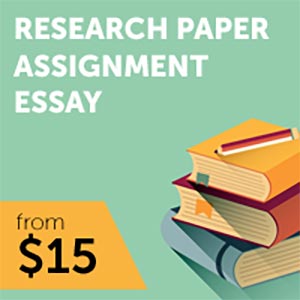
Useful links
- 5-paragraph Essay
- Admission Essay
- Argumentative Essay
- Cause and Effect Essay
- Classification Essay
- Comparison Essay
- Critical Essay
- Deductive Essay
- Definition Essay
- Exploratory Essay
- Expository Essay
- Literature Essay
- Narrative Essay
- Personal Essay
- Persuasive Essay
- Research Essay
- Response Essay
- Scholarship Essay
© 2004-2018 EssayInfo.com - Essay writing guides and tips. All rights reserved. Privacy Policy

Extended Essay: Formal vs. Informal Writing
- Extended Essay- The Basics
- Step 1. Choose a Subject
- Step 2. Educate yourself!
- Using Brainstorming and Mind Maps
- Identify Keywords
- Do Background Reading
- Define Your Topic
- Conduct Research in a Specific Discipline
- Step 5. Draft a Research Question
- Step 6. Create a Timeline
- Find Articles
- Find Primary Sources
- Get Help from Experts
- Search Engines, Repositories, & Directories
- Databases and Websites by Subject Area
- Create an Annotated Bibliography
- Advice (and Warnings) from the IB
- Chicago Citation Syle
- MLA Works Cited & In-Text Citations
- Step 9. Set Deadlines for Yourself
- Step 10. Plan a structure for your essay
- Evaluate & Select: the CRAAP Test
- Conducting Secondary Research
- Conducting Primary Research
- Formal vs. Informal Writing
- Presentation Requirements
- Evaluating Your Work
Differences Between Informal and Formal Essays
When writing your extended essay you should use language that is formal and academic in tone. The chart below gives you some idea of the differences between informal and formal essays. See the box below for examples of the differences in tone in informal and formal essays written on identical topics. A PDF of this chart, and the examples below, is in the box to the right , along with a list of tips for avoiding colloquial writing.
Examples of Informal and Formal Tone in Essay Writing
The following examples highlight the differences between formal and informal tone.
Language B - English
- Formal vs. Informal Writing A chart giving the differences between informal and formal essays in seven areas (author's viewpoint; subject/content (sources of evidence); tone; structure; location of the research question; vocabulary; and purpose. Also included are examples comparing informal and formal writing for essays in English, biology, and psychology.
- How to Avoid Colloquial (Informal) Writing While it may be acceptable in friendly e-mails and chat rooms, excessive colloquialism is a major pitfall that lowers the quality of formal written text. Here are some steps/tips that you can follow to help improve your overall writing.
- << Previous: Plagiarism
- Next: Presentation Requirements >>
- Last Updated: Apr 12, 2024 2:56 PM
- URL: https://libguides.westsoundacademy.org/ee
Informal Writing Assignments
Brad hughes, martin nystrand, paige byam, and tom curtis, english.
The assignments below are generally short, informal, perhaps ungraded writing assignments that instructors might consider adapting to their classes. Students often appreciate the opportunity to explore their thoughts on paper in a way that relieves the pressure of a longer, more formal writing assignment.
The Question Box
Having students write anonymous questions about the content of lectures encourages them to think more critically about what they are hearing. Students can be asked to write these questions before, during, and after lectures. They can deposit their questions in a cardboard box near the exit of the lecture hall. During subsequent classes, the lecturer actually incorporates these student questions and insights into the presentation material, usually by reproducing the remarks on transparencies and projecting them directly to the class for comment and response.
Anticipatory Writing or Freewriting
Instructors can ask students to write informally (or to engage in a “freewrite”) about a particular course topic before they read, hear a lecture, or participate in a discussion about it. Such anticipatory writing helps students connect their previous knowledge with new information and prepares them for fuller participation in reading, lecture, or discussion.
- EXAMPLE (from a sociology course on criminal justice, before lectures about police corruption): “List the factors you can think of that lead to police corruption. How do you think those reasons might vary from urban to non-urban police forces?”
Microthemes or Minute Papers
Brief essays, written in class or as homework, ranging from a 3 x 5 card to a page in length. This kind of assignment is designed to encourage students to reflect on what they’re learning, to give feedback to instructors, and to promote specific cognitive skills, such as summarizing, argument, analysis, problem solving, or hypothesizing from data. Some benefits: students must learn to see right to the heart of an issue, to select only major points; instructors can emphasize a particular issue or type of thinking, can learn what students understand and what they don’t, and can read the microthemes quickly.
- EXAMPLE (from any course): To be written quickly and submitted at the end of the class—”What was the most important thing that you learned today?” “What were the main points of today’s lecture?” “What questions remain uppermost in your mind?” Begin the next class meeting by reading aloud selected microthemes.
- EXAMPLE (from a course in gender and the professions): “You are a writer for a major advertising firm. You have been asked to design two written advertisements for a vacation in England, one of which will attract men (Esquire) and the other to appeal to women (Ms.). You think, however, that two ads are unnecessary. Write a memo to your boss and explain why.”
- EXAMPLE (to promote specific kinds of thinking in any course): Provide students with a thesis that they then have to support in the microtheme with specifics. From a finance course: “Choose one of the following propositions and defend it in two pages: The price earnings ratio of a stock does/does not reflect the rate or return that investors in that stock will achieve.” Or provide students with specifics that they must draw a conclusion from. Or ask students to apply a theory to a new set of facts. Or ask students to explain (perhaps in outline form) a process for solving a problem.
- EXAMPLE (from a course in physiology): “Some organs of the body are functionally unique single structures (e.g., one heart, one spleen). Others are found as functionally redundant pairs (two kidneys, two lungs). Explain how the human brain might be cited as an illustration of both kinds of anatomical structure.”
Response Papers
These are one-, two-, or three-page exploratory “think pieces” requiring students to react to some aspect of an article or book or lecture. Typically the instructor asks students to take an idea that has come up in class lecture or discussion or in readings and develop it more fully. These pieces of writing should be treated as exploratory drafts; students might pick 2 or 3 such texts to revise and submit for grading at the end of the term. They will be most effective if instructors assign or allow students to choose a persona to adopt, a particular situation to respond to, an audience to address, a particular purpose to fulfill. To set this up, instructors should assign students a professional identity, a situation, and even a rhetorical form (letter, memo, etc.).
- EXAMPLE (from Professor Lee Hansen’s Econ. 450 class): “Imagine that you are serving as the principal economic adviser to Secretary of Labor Brock who asks you for a two-page analysis of Reissman’s proposal (attached) for a legislated four-day, 32-hour week; this would entail amending the Fair Labor Standards Act. Explain the likely effects of such legislation on measured employment and unemployment, total hours worked, the labor cost index, and earnings.”
Letters to Authors
A personal response to an assigned reading in the form of a letter. The informal style and imagined possibility of letters often makes them easier to write than essays.
- EXAMPLE: “Pick an author with whom you disagree or whom you admire. Write a letter to this person expressing your views.”
Persona Pieces
A short text in which a student role plays a particular figure, perhaps in the form of a journal entry or a letter.
- EXAMPLE: “Imagine that you are William Buckley and you are getting ready to debate Noam Chomsky on American foreign policy in Central America. Write down the points you intend to make in your debate. In order to anticipate Chomsky’s own arguments and be prepared, also write down what you expect to be his main points and how you will respond.”
Argumentative and persuasive texts geared to the classroom community or to a broader group.
- EXAMPLE (from a philosophy course): “Write an editorial for The Progressive or The National Review in which you support or argue against parents’ and doctors’ use of sophisticated biomedical techniques to detect potential birth defects in fetuses.”
Journals (special notebooks in which students write regularly) provide students with time and a requirement to think about course material and to engage in an ongoing written dialogue with their instructors. As Toby Fulwiler explains, journals can help individualize learning and encourage “writers to become conscious, through language, of what is happening to them, both personally and academically.” Students can use journals to
- record thoughts, insights, and impressions about course material
- ask questions and speculate; clarify, modify, and extend ideas
- respond to reading, lectures, or instructor’s questions
- begin thinking about ideas that can later be developed into more formal papers
- discover connections between course materials; prepare for exams, class discussion, or course papers
- gain fluency in writing.
Journals are different from other kinds of assignments in the freedom they provide for thinking that isn’t directly evaluated by the professor; they can provide a place for personal responses and for experimentation. Because journals are personal and because instructors need to make students feel comfortable being tentative and taking the kinds of risks that journals offer, it’s important to allow students leeway in the kinds of entries that they choose to write. Some students respond well to using a journal to sponsor their own topics in an unstructured way, while others seem to need more specific guidelines for journal writing.
Even though instructors do not usually grade journals for content or expression, they should, however, expect students to write regularly and thoughtfully in their journals. Part of a discussion or participation grade or a percentage of a student’s overall grade is often based on the effort exhibited in regularly writing in the journal. (Many instructors give their students A’s for a journal-keeping requirement if students regularly write in it and “No Credit” if they don’t.) One way to stress the importance of journals is to integrate them with other class activities. For example, journals can be used as a place for students to write at the beginning or end of class; instructors can periodically ask students to read entries aloud in class as a way to open up discussion. Students can also be asked to develop formal papers out of promising journal entries. And because journal writing takes place over an extended period of time and emphasizes developing thinking, some instructors have students review and write an introduction to their journals as a culminating assignment.
To make students take a journal assignment seriously and to encourage good thinking, instructors must read and respond to the journals, especially early in the semester. To keep the reading load manageable, instructors often
- skim journals to check on progress
- collect journals on a rotating basis
- respond briefly to selected entries that appear interesting or that students have selected for response; responses can take the form of a personal comment or a question to prompt further thought.
Double-Entry Learning Logs
These are special journals in which students respond to the material they read for class, on the one hand, and “talk with the teacher about the readings,” on the other. In these logs, students summarize key information (rather than just highlight key passages in the books or articles themselves) and respond to the reading—raising questions, drawing parallels, voicing objections, confessing confusion. If instructors respond to these logs, they can focus and direct students, point our ideas for fuller treatment in formal papers, suggest other reading, answer questions, challenge ideas. (Students can use a variation of this technique as they take class notes: in the right-hand column they can summarize, respond to, or question the detailed notes in the left column.) A word of caution, however: journals and learning logs are time-consuming for both instructors and students, and if instructors assign them, they may have to adjust the amount of reading as they assign or else use the logs for only certain readings.
Class Minutes
Summary of the class lecture or discussion, prepared by a student selected as secretary-for-the-day; duplicated for all class members, presented, and discussed briefly at the beginning of the next class.
Course Dictionaries
Glossary of key terms in a course, with students producing definitions, examples, illustrations, maps, diagrams, etc. During the first part of a course, students identify main terms and major concepts; during the second part, students collaboratively compile the course dictionary. The audience for the dictionary is students who will take the course in future semesters.
Students read half a story, chapter, book, or experiment, or a partial data set, and then predict the rest and justify their conclusions.
Informal Essay Examples
The best journey of my life.
There is nothing better than the emotions and feelings one can receive from setting out on an adventure. Journeys help us to forget about our everyday issues. That is why I want to tell you about the best journey of my life. It started at home as I began to pack items for a journey. I was excited because my parents and I were going to Thailand, the most interesting place to me. I could not imagine what it would…
Ig Nobel Prize
Human beings often use comic relief as a source of solace. Awarding scientific humorists is an extraordinary way to promote comic alleviation. The organizers of the Ig Nobel Prize introduced honor achievements that made people laugh and then later on think. This paper will discuss the Ig Nobel Prize, its origin, how the ceremony is held, and some of the people who won the award. The Ig Nobel Prize was first organized by Marc Abrahams, a founding member of the…
The Market Scene
Everything in existence is changing. Nothing disappears—it only shifts its form. And, despite the rapid information and technology development of our civilizations, the market exists, fulfilling its primary, historical mission: the exchange between buyer and seller. The market is considered from different points of view, but we will study its original meaning, namely retail space, where there are a multitude of buyers and sellers. A market is a place where an exchange between seller and buyer takes place (Merriam-Webster’s Dictionary)….
Informal Essay Examples to Ease Your Studies
Writing blogs, keeping diaries, and creating posts in social media all are forms of the informal style. An informal essay involves a more relaxed style than a formal essay and covers a wide variety of topics. This essay is usually written for pleasure and entertainment, but still requires the writer to stick to a strong structure and an academic style. When you read a book or poem, both you and the writer has enjoyed the process. In college or university, informal writing is assigned in order to determine whether the student can express thoughts and feelings in written form.
If you think that you have poor writing skills and you don’t completely understand how to write an informal essay – there is no need to panic. This is the right place to find a helping hand in those hours when your professor or writing office is not available. Sometimes it’s better to do it by yourself than waiting for a stressful meeting to receive general advice that you can easily find over the internet. Relax, take a cup of your favorite tea or coffee, and start deepening the principles of informal writing with our short informal essay examples.
It is thought that it is better to see something once than to hear about it several times. This rule also works with essays. When you don’t feel confident with writing a certain essay, you need to find some good informal essay examples for high school to see how a finished essay can look. But don’t limit yourself with one single sample that you find suitable. You can search for more essays from other rubrics and find out more ideas for topics and content.
Every experience is individual, but sometimes it’s hard to express it in the right words. Since childhood we are making friends and learn how to be a really good friend. How can informal essay examples about friendship help you? Nevertheless, a sample essay can give you some ideas or perspectives on how you can analyze your friendship or help you remember some moments that you can describe in your essay.
Here are some tips to write a good informal essay:
- Choose an interesting topic. To be able to write a good essay, you need to find it interesting. Your readers will be bored if you are not interested in the topic yourself. Visit our topics page to find some ideas for your paper.
- Read some informal essay examples. Pay attention only to reliable sites that you know well or ask recommendations from friends. When you got stuck with your informal essay, samples are the best helpers.
- Stick to the right tone. Informal essays are less formal and have a more conversational tone than other academic essays. But still you don’t have to use slang and colloquialisms.
- Add emotions. No matter whether you are writing something funny or sad, you need to show more emotions and engage your reader with the text.
- Put the most effort to narration. Think that you are writing a story and don’t pay too much attention to formal guidelines. But don’t forget that any story should be well-structured and contain a beginning, middle, and end.
- End strongly. Make sure that your readers will have positive and strong emotions after reading the last sentence of your essay. Summarize your thoughts in a memorable and catchy manner.
No matter whether you need an example of informal essay about education, family, or love, check our samples to get a good kick-start in writing a great informal essay. If you are thinking about copying parts of a sample to your own essay and pretending it to be your own words, this won’t work. There is a high probability that your tutor will consider it plagiarism. We advise you to put away those thoughts and pay attention to structure, transition words, and ideas that you can apply to your own writing . We hope our samples will serve you well!
A list of informal report topics you can find on our website.
Give your grades a boost
Original papers by high quality experts
Free preview and unlimited revisions
Flexible prices
- Retirement Farewell Speech Example
- Farewell Speech Example
- Business Owner Farewell Speech Sample
- Receiving a Twenty Year Service Award
- Princeton Graduation Speech
- Never Giving up on a Dream
- Medical Student Graduation Speech
Semi-formal
- Tribute Presentation Sample
- Greenpeace Organization
- Treatments of Autism Spectrum Disorder
- Marketing Manager Speech Sample
- Demographic Policy and Abortion in China
- Causes of Teenage Drug Addiction
- Positive Effects of Classical Music
- Developing of Professional Skills of the Employees
- College Psychologist Speech
- How to Plan an International Trip Essay
- Demonstrating a Marketing Plan for New Product Line
- Destructive Effects of GMO on Children
- Child Adoption Speech
- Become a Volunteer
- Why Videos Go Viral
- Party Planning for Children’s Birthday Parties
- Modern Relationship Problems Presentation Sample
- The Advantages of Jogging
- Let’s Become Vegetarians
- Killing Routines
Fiction review
Non-fiction review, creative review, business letters, academic letters, personal letters, essay writing, business writing, creative writing, research papers, writing tips.
What is a Familiar Essay in Composition?
Definition and Examples
- An Introduction to Punctuation
- Ph.D., Rhetoric and English, University of Georgia
- M.A., Modern English and American Literature, University of Leicester
- B.A., English, State University of New York
A familiar essay is a short prose composition (a type of creative nonfiction ) characterized by the personal quality of the writing and the distinctive voice or persona of the essayist. Also known as an informal essay .
"The subject matter," says G. Douglas Atkins, "largely makes the familiar essay what it is: it is recognizable by human being qua human being, shared by her and him, and common to us all, requiring no arcane, specialized, or professional knowledge—an amateur's haven" ( On the Familiar Essay: Challenging Academic Orthodoxies , 2009).
Highly regarded familiar essayists in English include Charles Lamb , Virginia Woolf, George Orwell , James Baldwin, E.B. White , Joan Didion, Annie Dillard, Alice Walker , and Richard Rodriguez .
Examples of Classic Familiar Essays
- Blakesmoor in H-----shire, by Charles Lamb
- Crooked Streets, by Hilaire Belloc
- Going Out for a Walk, by Max Beerbohm
- Getting Up on Cold Mornings, by Leigh Hunt
- On Going a Journey, by William Hazlitt
- The Town Week by E.V. Lucas
Observation
- "Post-Montaigne, the essay split into two distinct modalities: one remained informal, personal, intimate, relaxed, conversational, and often humorous; the other, dogmatic, impersonal, systematic, and expository ." (Michele Richman in The Barthes Effect by R. Bensmaia. Univ. of Minnesota Press, 1987)
Familiar Essays and Familiar Essayists
- - " Familiar essays . . . have traditionally been highly informal in tone , often humorous, valuing lightness of touch above all else. They have been filled with intimate personal observations and reflections, and have emphasized the concrete and tangible, the sensual enjoyment of everyday pleasures. . . .
- "Nowadays the familiar essay is often seen as a form particularly well suited to modern rhetorical purposes, able to reach an otherwise suspicious or uninterested audience through personal discourse , which reunites the appeals of ethos (the force and charm of the writer's character) and pathos (the emotional engagement of the reader) with the intellectual appeal of logos ." (Dan Roche, "Familiar Essay." Encyclopedia of the Essay , ed. by Tracy Chevalier. Fitzroy Dearborn, 1997)
- - "[T]he familiar essayist lives, and takes his professional sustenance, in the everyday flow of things. Familiar is his style and familiar, too, is the territory he writes about. . . .
- "In the end the true job of the familiar essayist is to write what is on his mind and in his heart in the hope that, in doing so, he will say what others have sensed only inchoately." (Joseph Epstein, preface to Familiar Territory: Observations on American Life . Oxford University Press, 1979)
Familiar Essays and Personal Essays
- " [Francis] Bacon 's influence continues today, often in familiar essays , whereas [Michel de] Montaigne's enjoys greater popularity as personal essays . The difference is neither precious nor sophistical, although it is subtle. Although the personal and the familiar are the two main sorts of essays, essays are, truth to tell, often both familiar and personal, the difference at least nowadays residing mainly in the degree to which a particular instance emphasizes the tiny prepositions that we find in Montaigne and Bacon alike: 'on' and 'of.' If the essay tips toward being about a topic--books, say, or solitude--it may be termed 'familiar,' whereas if it focuses a bit less on the general or universal and more on the character of 'the speaking voice,' it is likely a 'personal' essay." (G. Douglas Atkins, Reading Essays: An Invitation . University of Georgia Press, 2007)
Revival of the Familiar Essay
- "Equally problematic are conventional divisions of the essay into formal and informal, impersonal and familiar , expository and conversational . Though imprecise and potentially contradictory, such labels not only serve as a form of critical shorthand but also point to what is often the most powerful organizing force in the essay: the rhetorical voice or projected character [ ethos ] of the essayist. . . .
- "The modernist era, that period of fragmentation and innovation at the beginning of the 20th century, is best known to students of literature for the radical transformations that occurred in poetry and fiction. But the essay, too, experienced dramatic changes during this time. Divested of its self-conscious literariness and reinvested with the colloquial vigor of popular journalism, the essay was reborn in such cosmopolitan magazines as The Smart Set , The American Mercury , and The New Yorker .
- "This 'new' brand of essay—exuberant, witty, and often contentious—was in fact more faithful to the journalistic traditions of Addison and Steele, Lamb and Hazlitt than the often preciously lambent writings of those who had deliberately mimicked the English essayists. Recognizing the power of a combative narrative voice to attract readers' attention and impose on a journal a distinctive style , magazine editors recruited writers with forceful rhetorical presences." (Richard Nordquist, "Essay," in Encylopedia of American Literature , ed. S. R. Serafin. Continuum, 1999)
Organs of Personality
- - "The familiar essay in prose and the lyric in poetry are alike essentially literary organs of personality. In discussing the nature and the character of these two forms of literature, it is well-nigh impossible to consider separately the subject, the author and the style ." (W. M. Tanner, Essays and Essay-Writing . Atlantic Monthly Company, 1917)
- - "The true essay, then, is a tentative and personal treatment of a subject; it is a kind of improvisation on a delicate theme; a species of soliloquy." (A.C. Benson, "On Essays at Large." The Living Age , Feb. 12, 1910)
The Familiar Essay as Chat
- "A familiar essay is not an authoritative discourse, emphasizing the inferiority of the reader; and neither the learned, the superior, the clever nor overwitty, is the man who can "pull it off." An exhibition of pyrotechnics is all very fine; but a chat by a wood fire with a friend who can listen, as well as talk, who can even sit with you by the hour in congenial silence—this is better. When, therefore, we find a writer who chats with us familiarly about the little things that in the aggregate go to make up our experience in life, when he talks with you, not to show off, not to set you right, not to argue, above all not to preach, but to share his thoughts and sentiments, to laugh with you, moralize a bit with you, though not too much, take out of his pocket, so to speak, a curious little anecdote, or run across an odd little experience and share it pleasantly, enjoying it unaffectedly and anxious to have you enjoy it, too —when we have all this, we have the daintiest, the purest and the most delightful of all the forms of literature—the familiar essay." (Felix Emmanuel Schelling, "The Familiar Essay." Appraisements and Asperities as to Some Contemporary Writers . J.B. Lippincott, 1922)
- The Essay: History and Definition
- What Are the Different Types and Characteristics of Essays?
- What Is a Personal Essay (Personal Statement)?
- Definition and Examples of Formal Essays
- What Does "Persona" Mean?
- Periodical Essay Definition and Examples
- Definition and Examples of Humorous Essays
- 250 Topics for Familiar Essays
- exploratory essay
- What Is Colloquial Style or Language?
- Definition of Belles-Lettres in English Grammer
- A Look at the Roles Characters Play in Literature
- AP English Exam: 101 Key Terms
- Character Sketch in Composition
- The Writer's Voice in Literature and Rhetoric
- An Introduction to Literary Nonfiction

Informative Essay
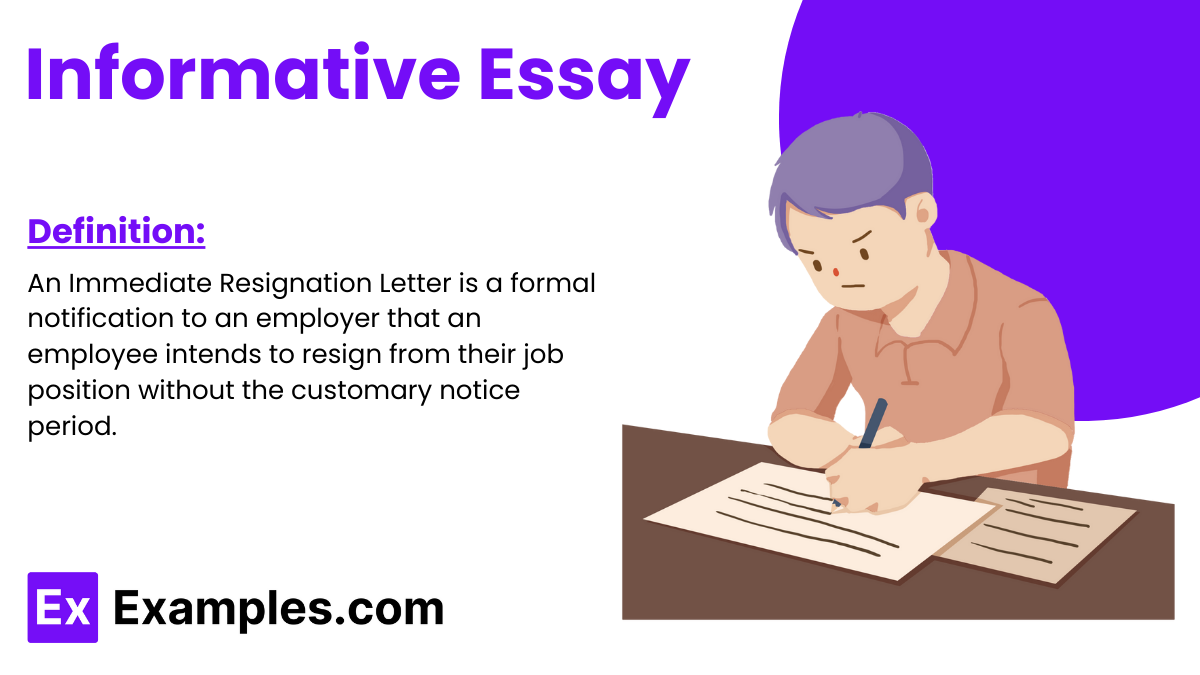
An Informative Essay stands out in the academic world as a tool for students to elaborate on specific topics with depth and clarity. By incorporating factual details and supporting evidence, these essays educate and enlighten the reader. This guide, enriched with practical essay examples , is tailored to assist students in mastering the art of crafting compelling and informative essays. Whether for school assignments or personal exploration, these examples provide valuable insights into effective informative essay writing.
What is an Informative Essay?
An informative essay is a genre of writing aimed at educating the audience on a particular topic or subject. This type of essay doesn’t just offer facts but also provides insights and explanations to help readers understand the subject matter more deeply. Unlike persuasive essays, which aim to convince readers of a particular viewpoint, informative essays are neutral; they do not express the writer’s personal opinions or arguments.
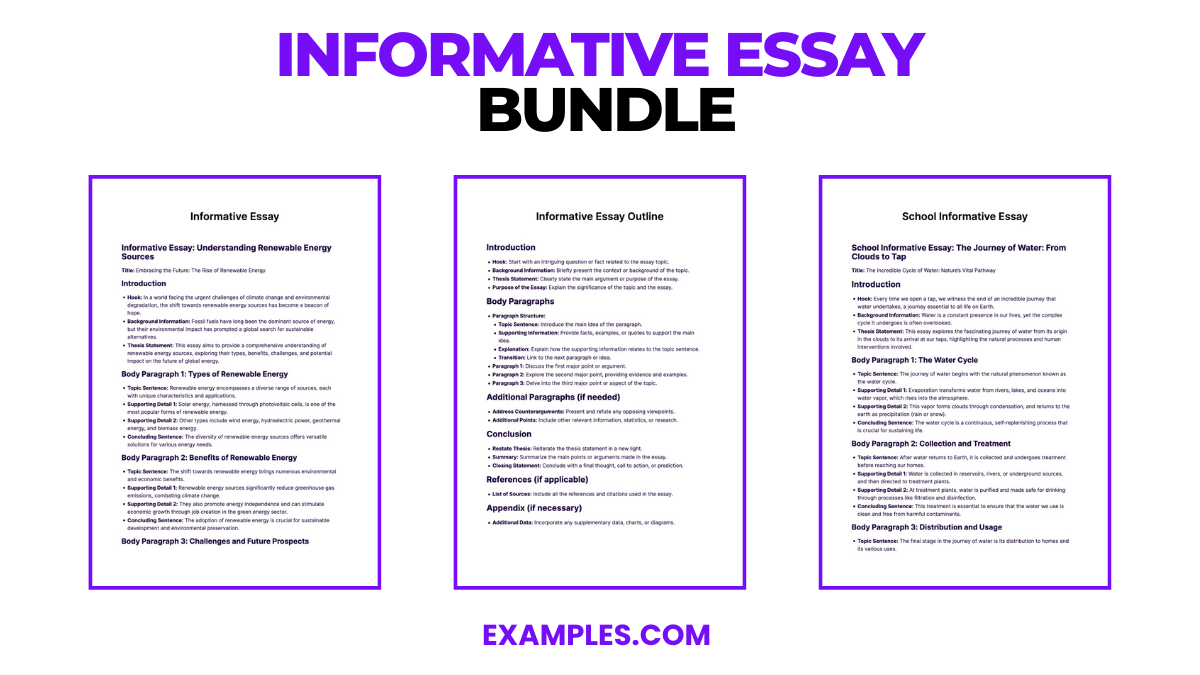
Download Informative Essay Bundle
You may have already been flooded with all these load of essays that your teacher asked you to write. You are probably thinking of a clever way on how to get away from the situation where you probably have not ever dreamed of. However, it is a task that we should all be thankful for. Essay writing actually brings more benefits than browsing through those social media platforms that you have already memorized. It does not only sharpen your minds and makes you more creative than putting likes and hitting shares of your friends’ post. The ability to share something from your mind is definitely a plausible act.
Informative Essay Format
Crafting an informative essay requires a structured approach to organize the wealth of information in a way that’s easily understandable to the reader. The format of an informative essay typically consists of three main parts: the introduction, the body, and the conclusion. Following this format helps in developing a coherent and logically flowing essay that effectively informs the reader.
Introduction
The introduction sets the stage for the entire essay. It should start with a hook that grabs the reader’s attention, such as a surprising fact, a question, or a vivid description of the topic. Following the hook, provide some background information to help readers understand the context of the essay. Finally, the introduction should end with a clear and concise thesis statement that outlines the main points or aspects of the topic that will be discussed. This statement acts as a roadmap for the essay, guiding the reader through the information presented.
Components of the Introduction: Hook : Engages the reader’s interest. Background Information : Provides context for the topic. Thesis Statement : Outlines the main points to be discussed.
Body Paragraphs
The body of an informative essay is where the main information is presented. It should be divided into paragraphs, with each paragraph focusing on a specific point or aspect of the topic. Start each paragraph with a topic sentence that introduces the point to be discussed. Follow this with supporting details, such as facts, examples, statistics, and quotes from credible sources. Each paragraph should be coherent and focused, contributing to the overall argument or presentation of the topic.
Structure of Body Paragraphs: Topic Sentence : Introduces the main idea of the paragraph. Supporting Details : Facts, examples, and evidence supporting the topic sentence. Transition : Smoothly connects to the next paragraph or point.
The conclusion of an informative essay wraps up the essay by summarizing the main points discussed. It should restate the thesis statement in a new way, reflecting the information presented in the essay. The conclusion can also highlight the importance or relevance of the topic, offering final insights or thoughts for the reader to consider. This section should leave the reader with a clear understanding of the topic and its significance. Elements of the Conclusion: Restatement of Thesis : Reflects the main points made in the essay. Summary of Main Points : Briefly recaps the key information discussed. Final Insight : Offers closing thoughts or implications of the topic.
Formatting Tips:
Use clear and concise language throughout the essay. Ensure each paragraph flows logically to the next. Cite sources where necessary to back up facts and claims. Keep the essay focused on informing the reader, avoiding personal opinions.
Types of Informative Essay
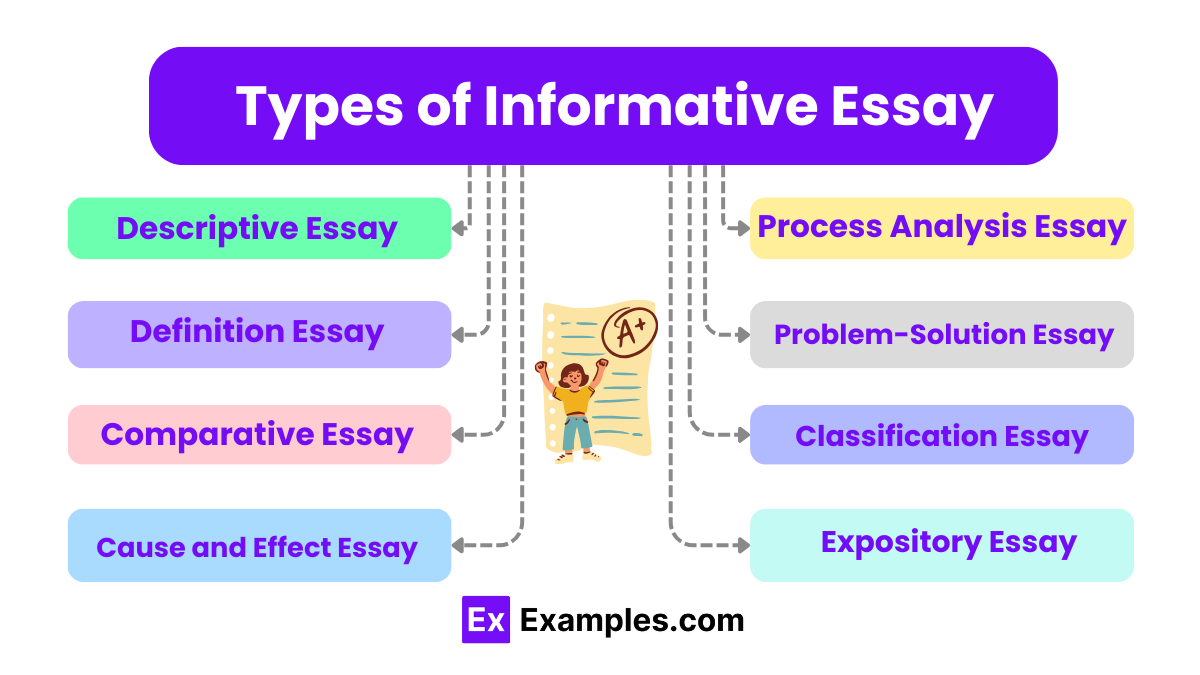
Download This Image
- Descriptive Essay : Provides a detailed description of a person, place, object, or event, using sensory details to paint a vivid picture for the reader.
- Definition Essay : Explores the meaning, history, and implications of a complex concept or term, offering a deep and thorough understanding beyond basic definitions.
- Compare and Contrast Essay : Analyzes two or more subjects by comparing their similarities and contrasting their differences, highlighting the nuances between them.
- Cause and Effect Essay : Examines the reasons why something happened (cause) and the outcomes that followed (effect), aiming to establish a clear relationship between events.
- Process Analysis Essay : Explains how something is done, how something occurs, or how something works, in a step-by-step format, providing clear instructions or insights.
- Problem-Solution Essay : Identifies a specific problem and proposes one or more solutions, focusing on presenting viable and effective ways to address the issue at hand.
- Classification Essay : Organizes or sorts different subjects or objects into categories based on shared characteristics, providing a clear understanding of their relationships and differences.
- Expository Essay : Presents a balanced analysis of a topic, using facts, statistics, and examples, aiming to explain or clarify a subject in a straightforward, unbiased manner.

How is an Informative Essay Structured?
An informative essay is structured in a clear, organized manner to effectively convey information to the reader. This structure consists of three main parts: the introduction, the body paragraphs, and the conclusion. Here’s how each part is typically organized:
- Hook : Begins with a captivating opening to grab the reader’s attention. This could be an interesting fact, a question, or a startling statistic related to the topic.
- Background Information : Provides context for the topic being discussed. This section gives the reader any necessary background information to understand the essay.
- Thesis Statement : Concludes the introduction with a clear, concise statement that outlines the main points or focus of the essay. This statement guides the rest of the essay.
- Topic Sentence : Each body paragraph starts with a topic sentence that introduces the main idea of the paragraph, relating back to the thesis statement.
- Supporting Details : These are facts, examples, or explanations that provide evidence to support the topic sentence. This may include statistics, quotes from credible sources, or logical arguments.
- Analysis : This section interprets the supporting details, explaining how they relate to the topic and the thesis statement. It’s where the writer’s insight comes into play, providing depth to the information presented.
- Transition : Each paragraph ends with a sentence that provides a smooth transition to the next paragraph, maintaining the flow of the essay.
- Summary of Main Points : Begins by briefly summarizing the key points or information presented in the body paragraphs, reinforcing the essay’s main ideas.
- Restatement of the Thesis : Reiterates the thesis statement in light of the information and analysis provided, emphasizing the essay’s main argument or focus.
- Closing Statement : Concludes with a final thought or call to action, leaving the reader with something to ponder or suggesting steps for further exploration of the topic
7 steps for Writing an Informative Essay
- Choose Your Topic : Select a topic that interests you and meets the assignment’s criteria. Ensure it is broad enough to research but narrow enough to be covered in your essay.
- Conduct Research : Gather information from reliable sources to understand your topic thoroughly. Look for facts, statistics, and examples that will provide a solid foundation for your essay.
- Create an Outline : Organize your thoughts and research into an outline. This will help structure your essay logically, ensuring a clear flow of ideas from the introduction through the body paragraphs to the conclusion.
- Write the Introduction : Begin with a hook to capture the reader’s interest, followed by background information to set the context for your topic. Conclude the introduction with a thesis statement that presents the main focus or argument of your essay.
- Develop Body Paragraphs : Each paragraph should focus on a single main idea that supports your thesis. Start with a topic sentence, followed by evidence and examples. Include your analysis to explain how this evidence relates to your topic.
- Conclude Your Essay : Summarize the main points of your essay, restate your thesis in light of the information provided, and offer a final thought or call to action. This is your chance to reinforce the importance of your topic and the information you’ve presented.
- Revise and Edit : Review your essay for any errors or unclear parts. Check for grammar, punctuation, and spelling mistakes. Ensure your writing is clear, concise, and logically organized. It may help to get feedback from others or to step away from your essay for a while before reviewing it again.
Purpose of Informative Essays
Informative essays serve a foundational role in educational and communication contexts, aiming to enlighten the reader on a specific topic or subject matter. The core purpose of these essays is to inform, explain, and educate without presenting the author’s opinion or persuading the reader to adopt a particular viewpoint. Here’s a deeper look into the primary objectives of informative essays:
Educate the Reader
The most direct purpose of an informative essay is to educate its audience. By presenting facts, data, and detailed explanations, the essay seeks to expand the reader’s knowledge on a given subject. This is particularly valuable in academic settings, where understanding diverse topics is essential to a well-rounded education.
Provide Clarity and Insight
Informative essays often tackle complex subjects that may be difficult to understand at first glance. Through clear writing and structured explanation, these essays break down intricate concepts into digestible parts, offering insight and clarity. They help the reader grasp the nuances of topics ranging from scientific theories to historical events and beyond.
Enhance Critical Thinking
By presenting information from various angles and including detailed analyses, informative essays encourage readers to engage in critical thinking. Readers are prompted to consider the hows and whys of the subject matter, analyze the information presented, and connect it to broader contexts or their personal knowledge.
Stimulate Interest
Although the primary aim is to inform, a well-crafted informative essay can also spark interest in the topic. By uncovering intriguing facts or presenting the subject in a compelling manner, the essay can motivate readers to explore the topic further on their own, fostering a culture of learning and curiosity.
Support Academic and Professional Success
In academic settings, informative essays are a tool for students to demonstrate their understanding of a topic, their ability to conduct thorough research, and their proficiency in communicating complex ideas. Professionally, these essays contribute to knowledge sharing within industries, helping individuals stay informed about current trends, innovations, and foundational concepts.
Build Foundation for Further Exploration
Informative essays lay the groundwork for deeper research and exploration. By providing a comprehensive overview of a topic, they equip readers with the basic knowledge necessary to delve into more specialized studies or related subjects, serving as a stepping stone for academic and personal growth.
10+Informative Essay Samples
15+ informative essay examples.
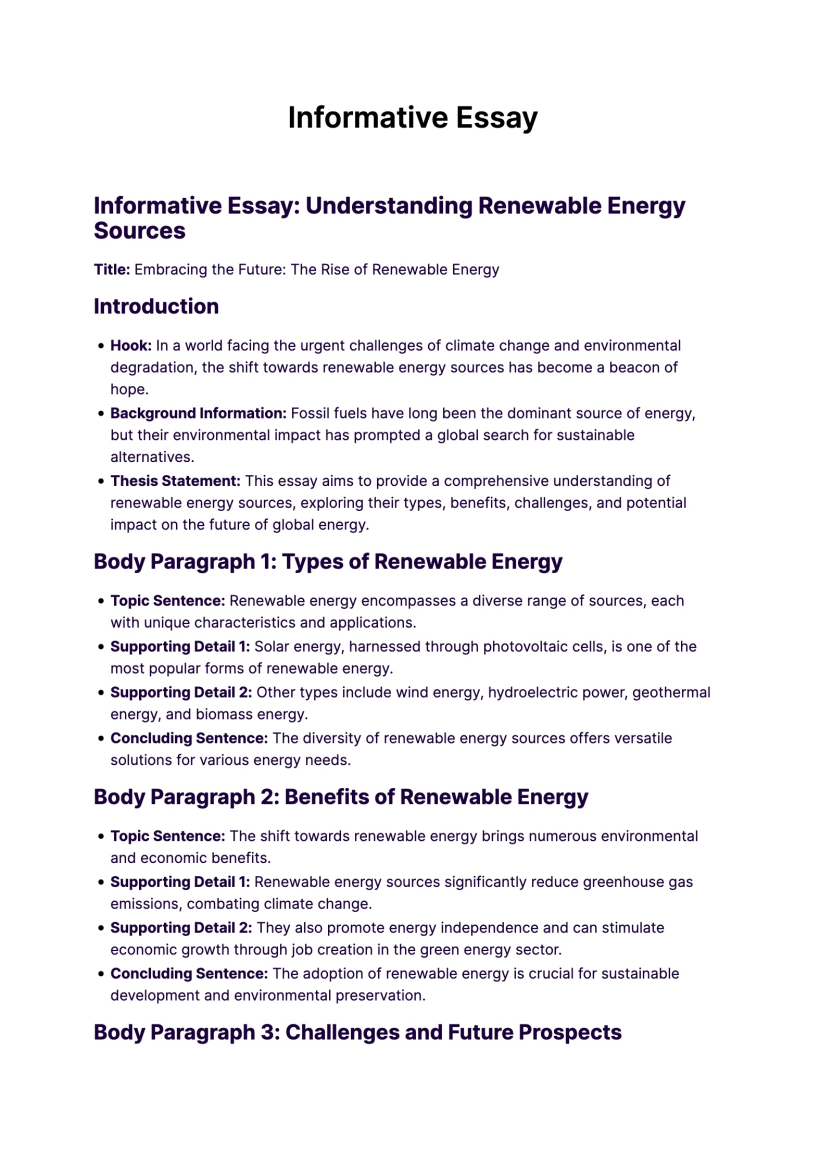
Free Download
Informative Essay Outline
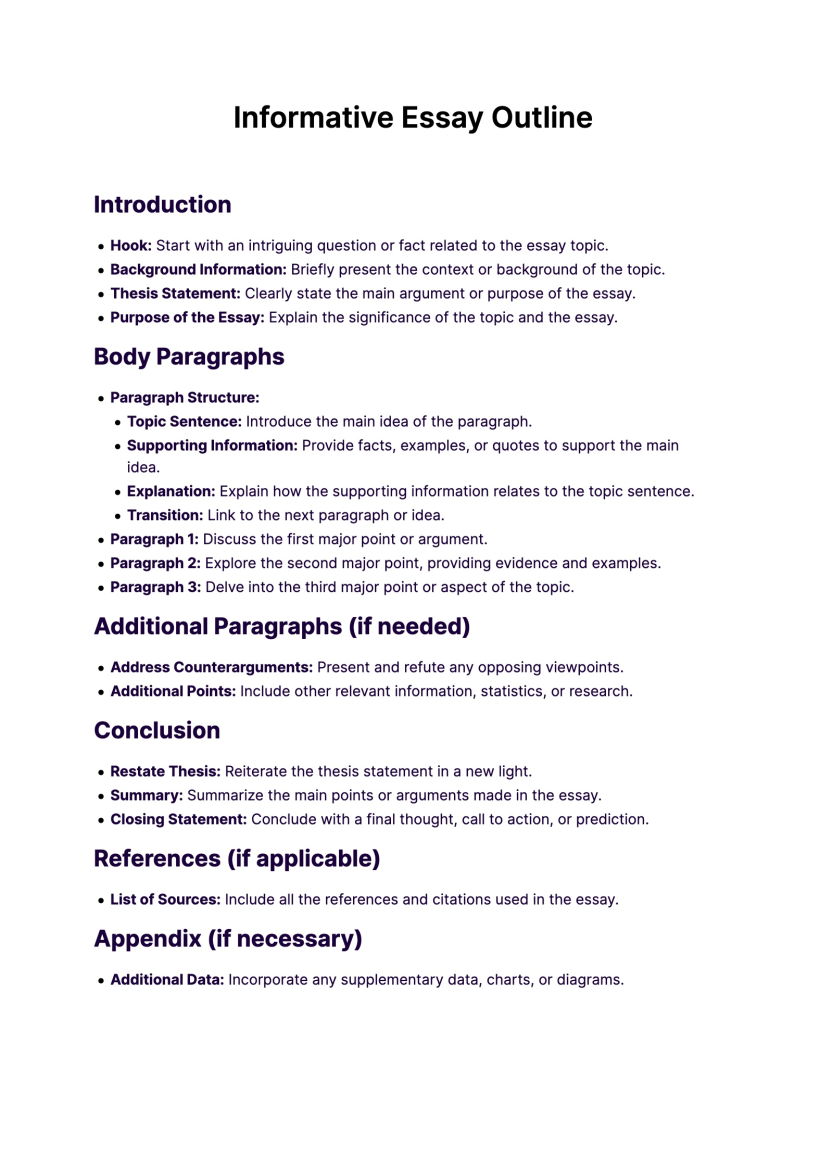
School Informative Essay
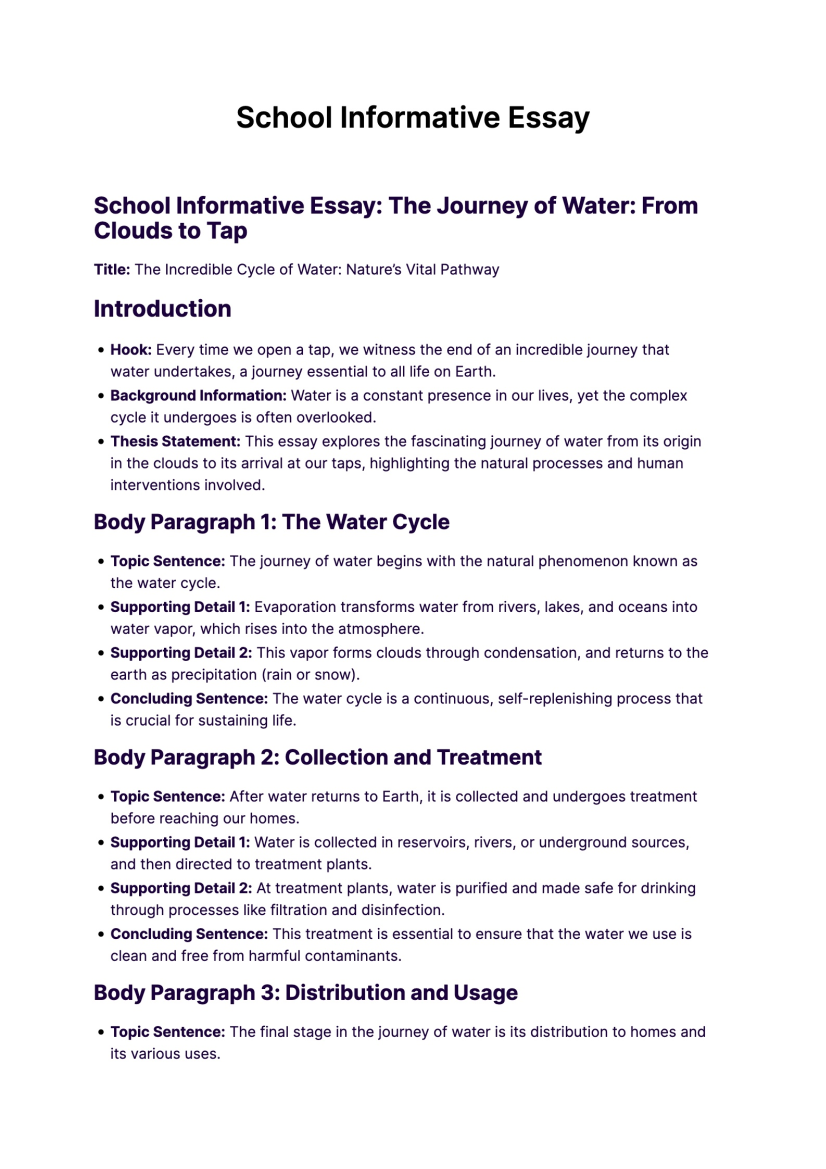
Informative Essay Example
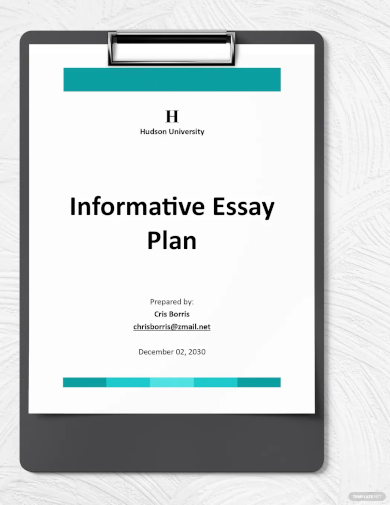
Expository Informative Example
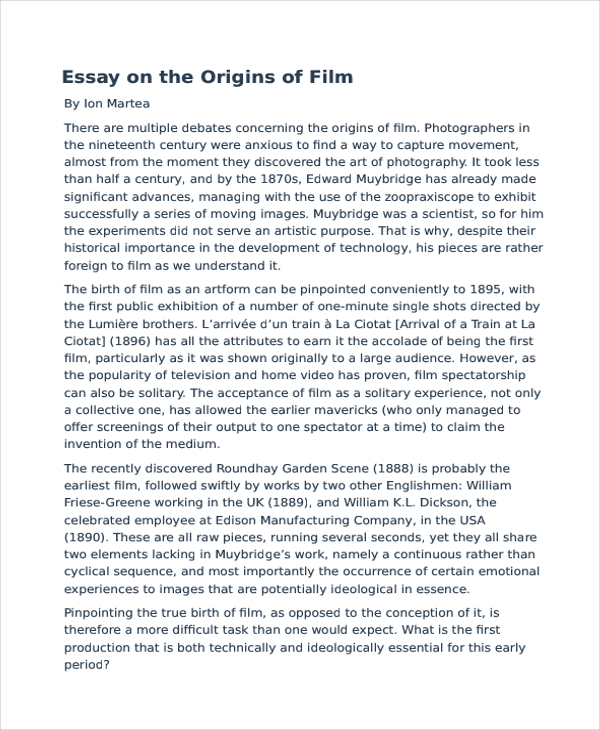
Student Informative Sample
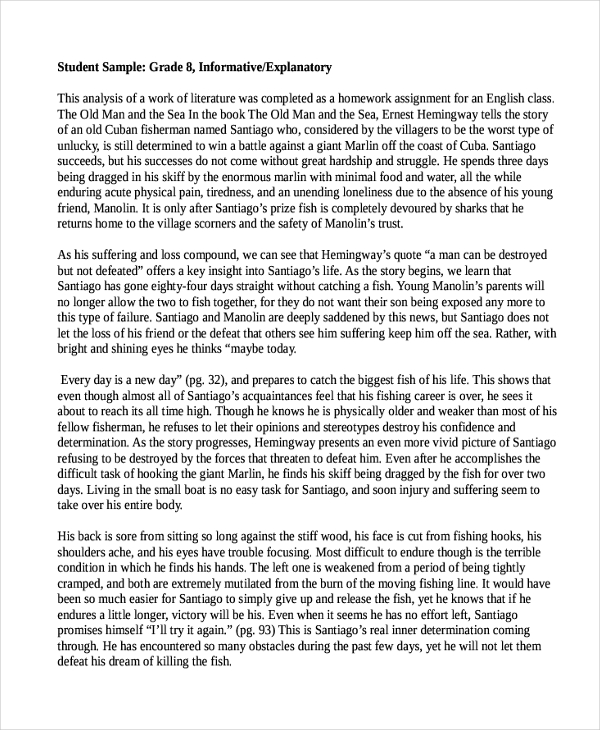
Short Informative Essay
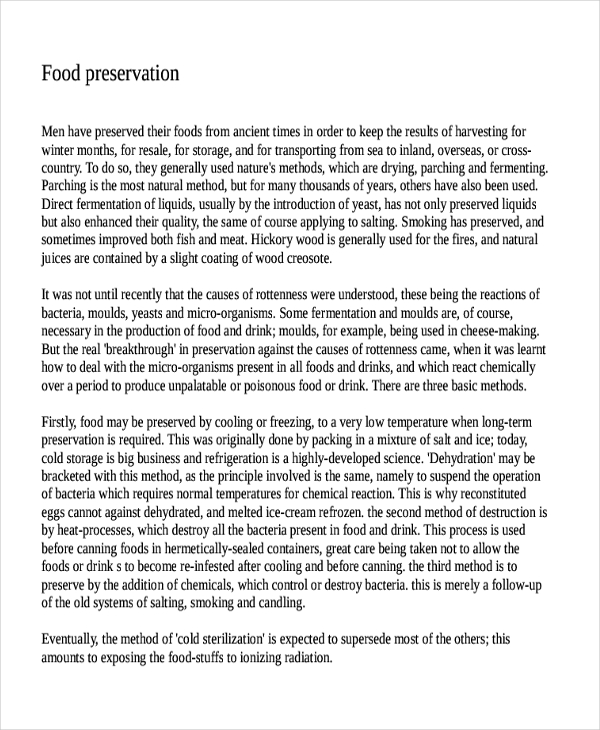
What Is an Informative Essay?
Informative essay is a written as literary essay piece with the purpose of educating a target audience or readers regarding a certain topic or subject.
It is intended to present or expose something while at the same time avoiding to present arguments or personal opinion from the writer. An informative essay is also sometimes called an expository essay in the sense that it also aims to expose or display an information which will be beneficial for the reader.
It does not present bias judgments nor favorable ideas. It does not also dwell in the concept of convincing readers to do things that are contrary to their will.
How to Write an Informative Essay
Writing an informative essay is like telling a blind person what is the color of the sky or telling a kid what are ice creams made of. You simply just have to present a topic and expand.
- Think of a topic. The first thing that you have to do is think of a topic that you want to right about. It would be good if it is something that you are most passionate about so you can write in great details.
- Create a format. The most effective format is using the essential parts of an essay .
- Present your ideas. After choosing the topic, start writing your ideas. Try to present it in a way that you are educating the readers.
College Informative Essay
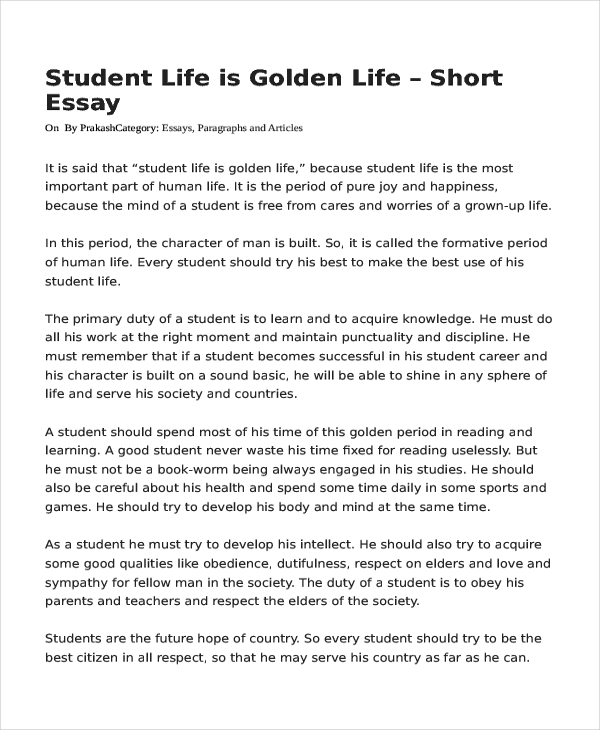
Middle School Informative
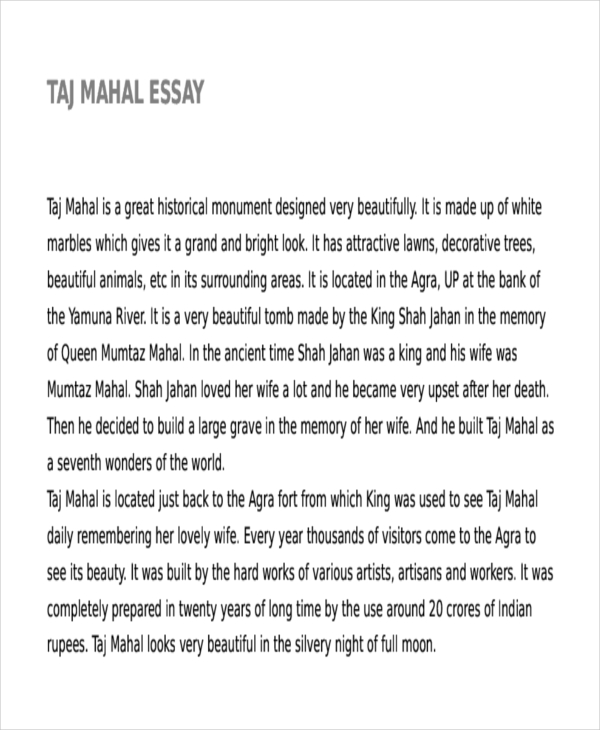
Narrative Informative Example
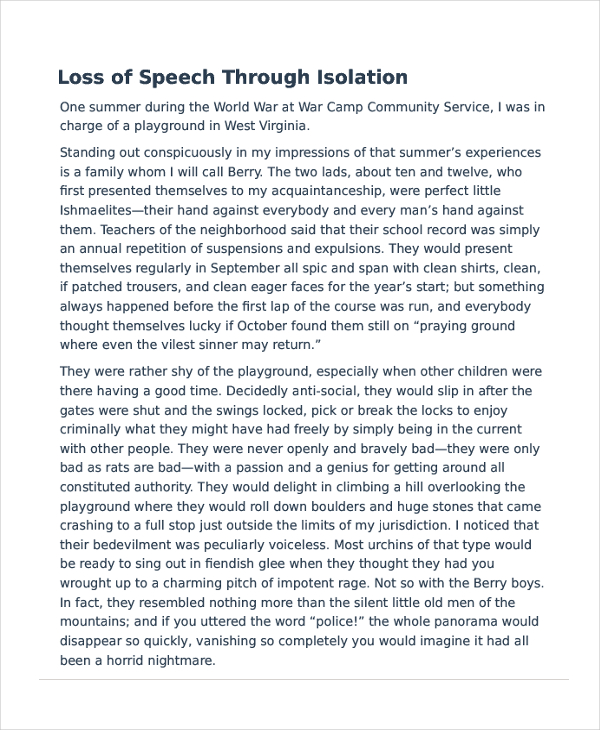
Informative Essay Example
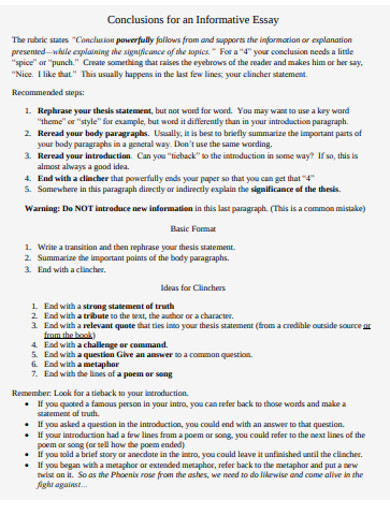
Sample Informative Essay
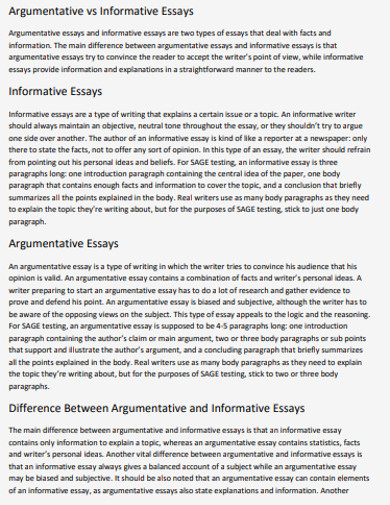
Informative Organizer Essay
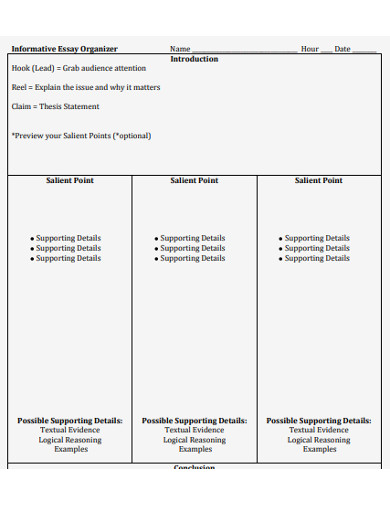
Informative Assignment Essay
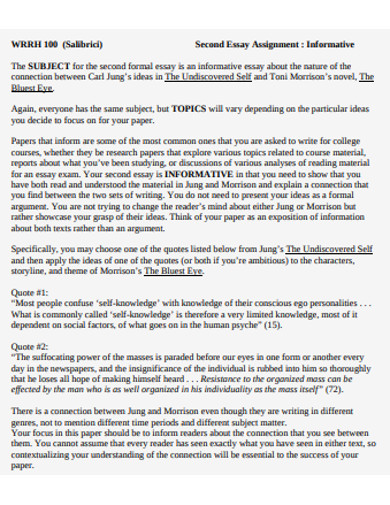
Uses of Informative Essay
1. educational tools.
- Learning and Teaching : Informative essays are widely used in educational settings to teach students about specific topics. They serve as a means for students to research, organize, and present information, enhancing their learning process. For educators, these essays are a tool to assess students’ understanding and ability to communicate knowledge effectively.
2. Enhancing Understanding
- Complex Concept Clarification : These essays break down complex concepts into more understandable parts, making it easier for readers to grasp difficult subjects. They can demystify scientific principles, historical events, or technological advancements, providing clarity and insight.
3. Communication of Ideas
- Knowledge Sharing : In professional and academic communities, informative essays facilitate the sharing of knowledge and ideas. They allow experts to communicate findings, theories, and analyses, contributing to the collective understanding of a field.
4. Awareness and Information Dissemination
- Public Awareness : Informative essays play a crucial role in raising awareness about important issues, such as health, environmental concerns, and social justice. By presenting facts and information, they help inform public opinion and encourage informed decision-making.
5. Basis for Further Research
- Foundation for Exploration : These essays provide a foundation for further research. By offering a comprehensive overview of a topic, they can inspire readers to explore subjects in greater depth, paving the way for advanced studies and discoveries.
6. Professional Development
- Skill Enhancement : Writing informative essays helps individuals develop valuable skills, including research, critical thinking, organization, and writing. These skills are essential in many professional contexts, enhancing career prospects and professional competence.
7. Decision Making and Problem Solving
- Informed Decisions : In the business world and personal life, informative essays can provide the necessary background to make informed decisions. Understanding all aspects of a situation or topic can lead to better problem-solving strategies and outcomes.
8. Cultural and Social Engagement
- Cultural Insight : Essays about cultural practices, societal trends, and historical backgrounds offer readers insights into different ways of life and perspectives, promoting cultural understanding and empathy.
9. Personal Growth
- Intellectual Stimulation : Reading and writing informative essays can be intellectually stimulating, encouraging curiosity and a love for learning. They can broaden one’s horizons and foster a more informed and thoughtful perspective on the world.
Importance of Informative Essay
- Facilitates Learning and Education : They are essential tools in educational settings, helping students learn and understand various topics across different subjects.
- Promotes Critical Thinking : Writing and reading informative essays encourage critical thinking by requiring analysis and synthesis of information.
- Enhances Research Skills : The process of writing an informative essay improves research skills, teaching individuals how to gather, evaluate, and organize information effectively.
- Improves Writing and Communication Skills : Informative essays help in honing writing skills, including structuring arguments, maintaining clarity, and engaging the audience with informative content.
- Encourages Intellectual Curiosity : They stimulate curiosity about the world, encouraging readers and writers to explore topics deeply and broadly.
- Supports Informed Decision Making : By presenting facts and data, informative essays enable readers to make decisions based on knowledge and insights rather than assumptions or misinformation.
- Builds a Foundation for Further Study : They lay the groundwork for more in-depth research and analysis, serving as a stepping stone to more specialized studies.
- Spreads Awareness on Important Issues : Informative essays are a powerful medium for raising awareness about social, environmental, and health-related issues, contributing to public education and action.
- Promotes Cultural Understanding and Empathy : Essays on cultural and societal topics promote understanding and empathy towards different communities and ways of life.
- Contributes to Professional Development : The skills gained from researching and writing informative essays are valuable in professional settings, enhancing abilities in documentation, presentation, and critical analysis.
- Serves as a Source of Inspiration : Reading informative essays can inspire new ideas, hobbies, or even career paths by introducing readers to previously unknown subjects or deeper aspects of familiar topics.
- Facilitates Clear and Effective Information Dissemination : In both academic and professional contexts, the ability to clearly and effectively disseminate information is critical, and informative essays are an excellent medium for this purpose.
How Do You Start an Informative Essay Sentence?
Start an informative essay sentence with a hook such as a surprising fact, a question, or a quote to grab the reader’s attention and draw them into the topic.
How Do You Structure an Informative Essay?
Structure an informative essay with an introduction that includes a hook and thesis statement, body paragraphs that explore the topic in detail, and a conclusion that summarizes the main points.
What Should Each Body Paragraph Begin With?
Each body paragraph should begin with a topic sentence that introduces the main idea of the paragraph, directly supporting the thesis statement.
What Are the Informative Writing Techniques?
Informative writing techniques include using clear and concise language, organizing information logically, employing facts and data for support, and incorporating visuals like charts or graphs to enhance understanding.
How Do You Start an Informative Letter?
Start an informative letter with a polite greeting, followed by a clear introduction of the purpose of the letter. Provide the necessary information in a concise and organized manner.
What Are the Parts of an Informative Essay?
The parts of an informative essay include the introduction with a hook and thesis statement, body paragraphs with topic sentences and supporting details, and a conclusion that summarizes the essay’s main points.
The basic parts or elements of an essay are the introduction, the body, and the conclusion. These are all important parts which of course constitutes the wholeness of your essay.
So each part has to be given with special importance. The conclusion of essay , which is the last part, should be your chance to make your readers understand the whole point of your topic.
This is the chance for you to clarify some important things that you want to highlight. It is advisable that you write at least three to five sentences for your conclusion in order for it not to become too explanatory which you have already done on the previous part.
Informative Essay Generator
Text prompt
- Instructive
- Professional
Crafting the Perfect Thesis for Your Informative Essay
How to Research Effectively for an Informative Essay
Structuring Your Informative Essay: A Step-by-Step Guide
Selecting the Best Topic for Your Informative Essay
The Importance of Editing Your Informative Essay
Incorporating Visuals into Your Informative Essay
Tips for Writing an Engaging Informative Essay Introduction
Developing Strong Arguments in Your Informative Essay
Informative Essay Conclusion: Leaving a Lasting Impression
Avoiding Plagiarism in Your Informative Essay
An informal email to a friend

Learn how to write an informal email to a friend.
Do the preparation task first. Then read the text and tips and do the exercises.
Preparation
Grouping_MjMwNDc=
How's it going?
Sorry I haven't been in touch for such a long time but I've had exams so I've been studying every free minute. Anyway, I'd love to hear all your news and I'm hoping we can get together soon to catch up. We just moved to a bigger flat so maybe you can come and visit one weekend?
How's the new job?
Looking forward to hearing from you!
I've been meaning to write to you for ages now so don't worry! How did your exams go? When will you know your results? I'm sure you did brilliantly as always!
As for me, I'll have been in the new job three months by the end of next week so I'm feeling more settled in. At first I felt like I had no idea what I was doing but now I realise it's normal to feel like that. There was a lot to learn – there still is actually – and I soon had to get used to the idea that I can't know everything. I used to work late a lot and at weekends but I'm slowly getting into a normal routine.
Which means I'd love to come and visit! We really need a good catch up! I can't believe we haven't seen each other since Carl's wedding. How does next month sound?
Anyway, I'd better get back to work.
Congratulations on the new flat! Can't wait to see you!
TrueOrFalse_MjMwNTA=.xml
Matching_MjMwNTE=.xml
GapFillTyping_MjMwNTI=.xml
What's the best way to stay in touch with friends you don't see often?
Language level
Well, I think the best way to stay in touch with my friends is call them or write them e-mails. Another way is by visiting their social networks, comments their publications or putting Likes on their photos. They love that.
- Log in or register to post comments
The best way to keep in touch is to go and see them!
I was pulling your leg! It was the best way before the internet was invented.
After the advent of the Internet, nobody can complain about not being aware of your friends and family. There are a lot of ways we can choose according to our situation.
In my view, video and voice calls make a more tangible connection. I usually reach out to them on special occasions like their birthday. But at other times, send a text and voice message.
If I would like to catch my friend on the hop, on her birthday, I will write a letter. This sounds old-fashioned but, in this era, receiving a letter is an unusual and exciting way to hear from someone.
I prefer to stay in touch with my friends by using instant messaging apps like WhatsApp or Facebook Messenger.
I agree, but i think THE BEST WAY IS TO see one anotHer . I know i'm old school
the best way to stay in touch with my friends i don't see often is texting them since we are occupied with our study and we also don't have much free time to meet in person.
I use Facebook and other social media to see what my friends are doing on daily basis. But if I want to know what is really happen I have to call them. The best way to know what's going on and how someone is feeling is to meet him and talk
I think so in all things that you right Sanja.
I think the most important is offline meetings. The best way is go to interesting place and after all speak about most interesting events in life. For example, I can go to cinema and then walk in park with guitar and ice cream and speak about everything!
What's your assement about this email ? thank you for advance.
Dear Bob I Hope this letter will find you and your entire family in good health. It's been a while! I'm writing to tell you about my recent relocation to a new house. As I told you the last time we spoke on the phone that I've got a new job, so it saves money, avoids traffic and it requires less effort to get to my office. My new house is close to Victoria métro station and it's located in the town's center. It's a second floor apartement with two bedrooms, a leavingroom, a small dining room, a bathroom and of corse a kitchen, it's rather roomy for that reason why I'm grateful for it. Besides the neighborhood is serene and beautiful as well. Would you like to visit us for a few days during the next holiday, I'm sure you'll enjoy the area, so we are waiting for you. I look forward to seeing you in my new home Take care Warm wishes Adil.
Online courses

Group and one-to-one classes with expert teachers.

Learn English in your own time, at your own pace.

One-to-one sessions focused on a personal plan.

Get the score you need with private and group classes.
How to Write a Formal Essay: Format, Rules, & Example
If you’re a student, you’ve heard about a formal essay: a factual, research-based paper written in 3rd person. Most students have to produce dozens of them during their educational career.
Our specialists will write a custom essay specially for you!

Writing a formal essay may not be the easiest task. But fear not: our custom-writing team is here to guide you through the process. This article will:
- explain what a formal essay is;
- show how to write it step by step;
- provide you with an essay sample.
👔 Formal Essay Definition
- ✅ How to Write
- ✍️ Writing Rules
- 🖥️ Essay Format
- 📑 Sample Paper
🔍 References
A formal essay is a well-structured piece of writing with a clear introduction, body, and conclusion. This type of essay often includes cited research, uses an academic tone, and is written in 3rd person. While writing a formal essay, it’s necessary to back up your arguments with factual evidence.
What Is an Informal Essay vs. Formal Essay?
Essays come in two formats: formal and informal (also known as personal .) They differ in terms of style and context. You can choose one of the formats depending on the situation and the type of paper you need to write.
Don’t know how to tell the difference between them? Well, here are some key characteristics of these essay types:
As you can see, these types of writing are almost total opposites. Informal essays are only reserved for creative assignments, which means that most of the papers you write need to be formal.
Just in 1 hour! We will write you a plagiarism-free paper in hardly more than 1 hour
Our article on creative essays can help you write an informal paper. But how do you craft a perfect formal essay? Keep reading to find out.
✅ How to Write a Formal Essay
Traditionally, a formal essay it’s composed of 3 sections: an introduction, 3 or more body paragraphs, and a conclusion. Let’s examine each part in detail.
Formal Essay Introduction
The introduction is what your essay starts with. Its primary goal is to catch the reader’s attention with a hook, briefly introduce the topic, and lead toward the thesis statement located at the end of the first paragraph.
Here is what you might want to keep in mind while writing the introduction:
If you want some more inspiration for your introduction, check out our article on hooks in writing .
Receive a plagiarism-free paper tailored to your instructions. Cut 20% off your first order!
Now on to the thesis statement : the key idea of your essay. When working on it, keep in mind that it should answer the central question in your topic and reflect your essay’s overall structure. your essay’s overall structure.
Suppose your topic is related to the teaching methods involving poetry. In that case, the thesis statement can be like this:
Teaching methods that involve reading and writing poetry in elementary school are beneficial for children as they enhance their capacity for empathy, develop creativity, and help with self-realization.
Formal Essay Body
The next part of an essay is the main body paragraphs. They support the thesis statement with well-developed arguments and explore the topic in-depth. Each body paragraph starts with a topic sentence stating its main point. The length of a paragraph can vary, but the best option is to have between 4 and 7 sentences.
To make the text flow easily, you may use transitional words. Here are some examples:
- after all,
- for instance,
- on the one/other hand,
- initially,
- as a result.
How to Write a Formal Essay Conclusion
Lastly, every essay needs closure. A good conclusion summarizes the essay’s main ideas, includes a paraphrased thesis, and encourages the readers to think more about the topic.
Get an originally-written paper according to your instructions!
The structure of a conclusion may change slightly depending on the subject. For instance, it can suggest some solutions to a problem, express an opinion, or give a recommendation. It’s important to remember that the conclusion is a part that emphasizes your essay’s most important points and doesn’t introduce new information.
If you’re curious about writing each essay part, check out our article on 5-paragraph essays .
✍️ Formal Writing Rules
Just like choosing the proper attire to wear to a formal event, we need to use the right words while writing a formal essay. Here are some suggestions that can help you maintain a formal tone in your paper:
Dos of formal writing
- Pay attention to your vocabulary. The words you will use in a formal essay will likely have a nuanced meaning. Make sure you know exactly what the terms mean, and do your best to sound precise.
- Use punctuation correctly. Here are some of the things to watch out for: Avoid exclamation marks; Use dashes for insertions; Use colons with enumerations; If you’re unsure of whether to use a punctuation mark or not, rewrite the sentence in a way that doesn’t require it.
- Use varied sentence structure. In formal writing, there is always a danger of sounding monotonous. Avoid repeating sentence structures to make your essay more readable.
- Provide references. It’s essential to cite every idea that you borrow. Try to paraphrase quotations from your sources: it will help you avoid plagiarism.
Don’ts of formal writing
- Avoid using pronouns. With words such as “I,” “me,” “we,” or “us,” an essay becomes wordy. It also makes the author seem less sure of their ideas. If you want to use personal pronouns, try substituting them with words like “the reader,” “viewers,” or “one.”
- Avoid using slang expressions and nonstandard diction. Slang words in a formal essay will make it less appealing to the readers. If you want to be taken seriously, it’s best to avoid those expressions and use proper Standard English.
- Avoid informal tone. When you write a formal essay, incorporate the language and the expressions you would use while delivering a speech, not the words you use when you casually talk to friends. A formal tone suggests that the author is serious about the topic and respects the audience.
- Avoid passive voice. Passive verbs are hard to read, and they are wordy. Use active voice to sound more straightforward and concise.
Contractions in Formal Writing
A contraction is usually a combination of two words into one, such as “don’t,” “isn’t,” “can’t,” and “wouldn’t.” When you work on a formal essay, it’s essential to be careful about contractions. It’s inappropriate to use them in academic writing, so it’s best to stick to the full variant.
However, there are exceptions to this rule. For instance, when working with direct quotations, it’s essential to reproduce words exactly as they are used in the original. To learn more about it, be sure to check out the University of North Florida’s article on in-text citations .
What to Use Instead of “You” in an Essay
Another common mistake students make is using the “you” and “yours” pronouns to address the readers. This mistake can make the essay overly informal and lead to misinterpretations of the text.
How do you fix it? Our advice is to replace 2nd-person pronouns with the following words:
- individuals,
You can find more formal writing tips in this informative video from Smrt English:
🖥️ Formal Essay Format
Now that we’ve discussed formal essay writing in detail, it’s time to look at the formatting. A formal essay is usually written in MLA or APA formats. If you’re asked to write a paper in one of these formats, you may find the guidelines below helpful:
📑 Formal Essay Example
Here is an excellent sample of a formal essay that uses all the guidelines mentioned in this article. It will help you to produce a perfect paper of your own:
For more information, check out Purdue OWL’s resources on various formatting styles .
Formal Essay Topics
- Stress management techniques
- The effects of coffee
- Negative effects of technology on children
- Causes and outcomes of organizational conflicts in sports
- Different types of friends
- Same-sex marriages in the United States
- Are early marriages harmful or beneficial?
- How do nutrition and hydration improve athletes’ performance?
- Is polygamy morally acceptable?
- Different features of sports business
- What characterizes friendship in the age of media ?
- Positive and negative effects of tourism on environment in the Caribbean
- How does society treat single parents ?
- How does the uninvolved parenting style affect child’s future well-being?
- The role of family relationships in Odyssey
- Financial concepts in sport finance
- Main features of a strong marriage
- The importance of media coverage for sport teams
- Reasons why students choose to get internship
- The role of stadiums in the sports industry
- The multiracial family: the Carters case analysis
- Characteristics of children’s sports
- Crucial factors affecting health fitness
- How is technology used in hotel management ?
- Structure and operational context of Four Seasons
- What are the main qualities of a true friend?
- Different websites that promote rental properties
- The imperative aspects of tourism
- Importance of hotel training
- What factors determine adolescents’ adjustment after they experience parental divorce ?
- How does tobacco use affect the human body?
- The importance of language and world view for communication
- What makes a combination of reinforcement and punishment in parenting efficient?
- The scientific approach of sports economics
- How does divorce affect children?
- Living on-campus vs. living off-campus when attending university: a comparison
- How does the New Moves program promote a healthy lifestyle?
- How to be an effective counselor
- Various types of restaurants in Ireland
- Carolina Dog’s characteristics
- Comparison of Monzameon’s The Love Suicides at Amijima and Tartuffe by Moliere
- Comparing homosexual and heterosexual families
- How is family presented in Everyday Use by Alice Walker ?
- In what ways can Anaerobic Threshold be assessed?
- Is bad parenting a healthcare problem?
- Why student-athletes should benefit from sports
- Mind-body awareness and its health benefits
- Can punishment boost academic performance?
- Techniques to teach students swimming
- Issues faced by the sports licensing field
Thanks for reading through this guide! We hope that you found it helpful and now have a better idea of how to write an excellent formal essay. Don’t hesitate to share our article with a friend who may need it. Good luck!
Further reading:
- How to Write a Critical Thinking Essay: Examples & Outline
- What Is a Discourse Analysis Essay: Example & Guide
- How to Write a Narrative Essay Outline: Template & Examples
- How to Write a Précis: Definition, Guide, & Examples
❓ Formal Essay FAQs
It’s best not to use pronouns such as “I,” “my,” “we,” “our,” etc., in a formal essay since it give the paper an informal tone and the text becomes wordy. It also makes the writer seem less sure about their ideas.
It’s better to avoid using parentheses and dashes in formal academic writing. If the information you want to include in the essay is important enough, it should be a part of the sentence. Otherwise, you can simply omit it.
The formal and informal essays differ in style and context. While a formal essay is a piece of well-structured writing that tries to convince the reader by providing arguments, an informal essay has no set structure. It reflects the author’s personal thoughts or opinions.
Starting your sentence with “because” in formal writing is not the best idea. The word “because” is a subordinate conjunction, which means it’s used to join the main clause to a subordinate clause, not to start a sentence.
It’s best to avoid using 1st- and 2nd-person pronouns, slang expressions, nonstandard diction, and contractions in a formal essay. They are primarily used in daily speech and are considered inappropriate in academic writing.
- Point of View in Academic Writing: St. Louis Community College
- Components of a Good Essay: University of Evansville
- Introductions & Conclusions: University of Arizona Global Campus
- How to Improve Your Academic Writing: University of York
- Nine Basic Ways to Improve Your Style in Academic Writing: University of California, Berkeley
- Academic Writing Style: Organizing Your Social Sciences Research Paper: University of Southern California
- Formal and Informal Style: Northern Illinois University
- Formal Writing: Davenport University: LibGuides
- Share to Facebook
- Share to Twitter
- Share to LinkedIn
- Share to email

Rhetorical analysis is never a simple task. This essay type requires you to analyze rhetorical devices in a text and review them from different perspectives. Such an assignment can be a part of an AP Lang exam or a college home task. Either way, you will need a solid outline...

A synthesis essay requires you to work with multiple sources. You combine the information gathered from them to present a well-rounded argument on a topic. Are you looking for the ultimate guide on synthesis essay writing? You’ve come to the right place! In this guide by our custom writing team,...

A critical analysis essay is an academic paper that requires a thorough examination of theoretical concepts and ideas. It includes a comparison of facts, differentiation between evidence and argument, and identification of biases. Crafting a good paper can be a daunting experience, but it will be much easier if you...

Process analysis is an explanation of how something works or happens. Want to know more? Read the following article prepared by our custom writing specialists and learn about: process analysis and its typesa process analysis outline tipsfree examples and other tips that might be helpful for your college assignment So,...

A visual analysis essay is an academic paper type that history and art students often deal with. It consists of a detailed description of an image or object. It can also include an interpretation or an argument that is supported by visual evidence. In this article, our custom writing experts...

Want to know how to write a reflection paper for college or school? To do that, you need to connect your personal experiences with theoretical knowledge. Usually, students are asked to reflect on a documentary, a text, or their experience. Sometimes one needs to write a paper about a lesson...

A character analysis is an examination of the personalities and actions of protagonists and antagonists that make up a story. It discusses their role in the story, evaluates their traits, and looks at their conflicts and experiences. You might need to write this assignment in school or college. Like any...
![short informal essay examples Critical Writing: Examples & Brilliant Tips [2024]](https://custom-writing.org/blog/wp-content/uploads/2021/02/fingers-note-report-journalist-filling-284x153.jpg)
Any critique is nothing more than critical analysis, and the word “analysis” does not have a negative meaning. Critical writing relies on objective evaluations of or a response to an author’s creation. As such, they can be either positive or negative, as the work deserves. To write a critique, you...

If you are assigned to write a rhetorical analysis essay, you have one significant advantage. You can choose a text from an almost infinite number of resources. The most important thing is that you analyze the statement addressed to an audience. The task of a rhetorical analysis essay is to...

Any literary analysis is a challenging task since literature includes many elements that can be interpreted differently. However, a stylistic analysis of all the figurative language the poets use may seem even harder. You may never realize what the author actually meant and how to comment on it! While analyzing...

As a student, you may be asked to write a book review. Unlike an argumentative essay, a book review is an opportunity to convey the central theme of a story while offering a new perspective on the author’s ideas. Knowing how to create a well-organized and coherent review, however, is...

The difference between an argumentative and persuasive essay isn’t always clear. If you’re struggling with either style for your next assignment, don’t worry. The following will clarify everything you need to know so you can write with confidence. First, we define the primary objectives of argumentative vs. persuasive writing. We...

IMAGES
VIDEO
COMMENTS
Determine the purpose of the future essay. 2. List as many subjects in the focus of your interest as possible. 3. Evaluate each of the topics in the list. 4. Develop a topic of choice using any paper structure you like. 5. Double-check and proofread the completed paper.
An informal essay is a nonfiction essay that follows no specific structure and is based solely on the author's ideas and reflections. An informal essay is often written in the first or second ...
Use this informal essay sample as a collection of guidelines. The main thing is that this example is written in a relaxed manner, but it adheres to a particular structure. Short informal essay examples usually include the personal contact, and not the academic writing flow. You can find a subjective opinion in this type of paper, so you should ...
An informal essay is quite different from other types of essays.. In an informal essay, you're writing as if you are talking to a friend. You do not need to engage in a strict academic writing process, but you should still avoid sloppiness. In a formal essay, you expresses your ideas quietly behind the words. In an informal essay, you talk to the reader in a conversational manner.
The essay is usually personal in nature and based on memory. A good example of an informal essay is - The happiest day of my life. ... You can use informal transition words, short sentences, contractions, common and cliché words, adages, expressions, and personal examples. Here are the steps to take if assigned to write an informal essay. 1. ...
The newspaper columns are really short essays, usually humorous. The informal essay can be much less restricted by structural conformities and much more personal in both approach and expression. Allow your personal opinions and mode of expression to show through in an informal essay, rather than trying to sound 'academic'.
Paragraphs are short, as is normal in a newspaper with its narrow columns, and the tone is more conversational than would be appropriate for a formal essay. ... The essay topics of the informal essay type are not limited to any specific subject, you can write your informal essay on any topic. For example, here are some popular essay topics to ...
Informal essays are a type of written composition that typically express the author's thoughts, opinions, and experiences on a particular topic in a relaxed and conversational style. Unlike formal essays, which adhere to strict academic conventions and often follow a rigid structure, papers allow for a more flexible and personal approach to ...
Although an informal essay may have a casual style, it has a simple structure than the formal one. An informal essay tends to be more personal, but you can still use it to communicate objective opinions. In a formal essay, an essayist is quietly introducing their contemplations behind the words; however, in an informal paper, the writer is associated with the reader in a conversational style.
Differences Between Informal and Formal Essays. When writing your extended essay you should use language that is formal and academic in tone. The chart below gives you some idea of the differences between informal and formal essays. See the box below for examples of the differences in tone in informal and formal essays written on identical topics.
A personal response to an assigned reading in the form of a letter. The informal style and imagined possibility of letters often makes them easier to write than essays. EXAMPLE: "Pick an author with whom you disagree or whom you admire. Write a letter to this person expressing your views.". Persona Pieces.
Informal Essay Examples & Topics. Updated 16 May 2022. In most cases, an informal essay is written for enjoyment. We don't say it can't be informative, or persuasive. However, it contains less information about the issues you are describing. You can use relaxed expressions, humor, and observations. Well-written informal essay features ...
We'll give some examples below. 1. Contractions. It is advised to avoid contractions (shortened versions of words) in formal language, but they're acceptable in informal language. Unfortunately, the team could not replicate the results. (Formal) Unfortunately, the team couldn't replicate the results. ( Informal) 2.
Examples of essay outlines. Examples of outlines for different types of essays are presented below: an argumentative, expository, and literary analysis essay. Argumentative essay outline. This outline is for a short argumentative essay evaluating the internet's impact on education. It uses short phrases to summarize each point.
Informal Essay Examples to Ease Your Studies. Writing blogs, keeping diaries, and creating posts in social media all are forms of the informal style. An informal essay involves a more relaxed style than a formal essay and covers a wide variety of topics. This essay is usually written for pleasure and entertainment, but still requires the writer ...
Revival of the Familiar Essay "Equally problematic are conventional divisions of the essay into formal and informal, impersonal and familiar, expository and conversational.Though imprecise and potentially contradictory, such labels not only serve as a form of critical shorthand but also point to what is often the most powerful organizing force in the essay: the rhetorical voice or projected ...
Informed Decisions: In the business world and personal life, informative essays can provide the necessary background to make informed decisions. Understanding all aspects of a situation or topic can lead to better problem-solving strategies and outcomes. 8. Cultural and Social Engagement.
An informal email to a friend. Learn how to write an informal email to a friend. Do the preparation task first. Then read the text and tips and do the exercises. ... The best way is go to interesting place and after all speak about most interesting events in life. For example, I can go to cinema and then walk in park with guitar and ice cream ...
Types of Formal Essays. There are four main types of formal essays, or papers, this lesson will cover. These four types of formal essays are: The. The. The cause and effect essay. The ...
Title. Write your name, the instructor's name, your class, and the date in the upper left corner of the 1st page. Make the title centered and place it after the heading information in the same font as the rest of your paper. Create a separate title page. Make your title centered and written in boldface.
informal essay. Ally Kislyuk Ms.Nardi Eng2D1 March 23‚ 2014 "True friendship multiplies the good in life and divides its evils. Strive to have friends‚ for life without friends is like life on a desert island… to find one real friend in a lifetime is good fortune; to keep him is a blessing.". I believe friendship is a powerful word.